Jerusalem – The Old City
Stroll through the modern Mamilla Shopping Center with its outdoor sculptures, galleries, clothing stores, and trendy cafes. Climb a flight of stairs at the far end of the mall, and you’ll find yourself outside the historic Jaffa Gate, which marks the spot where the road once led from the ancient port of Jaffa to Jerusalem.
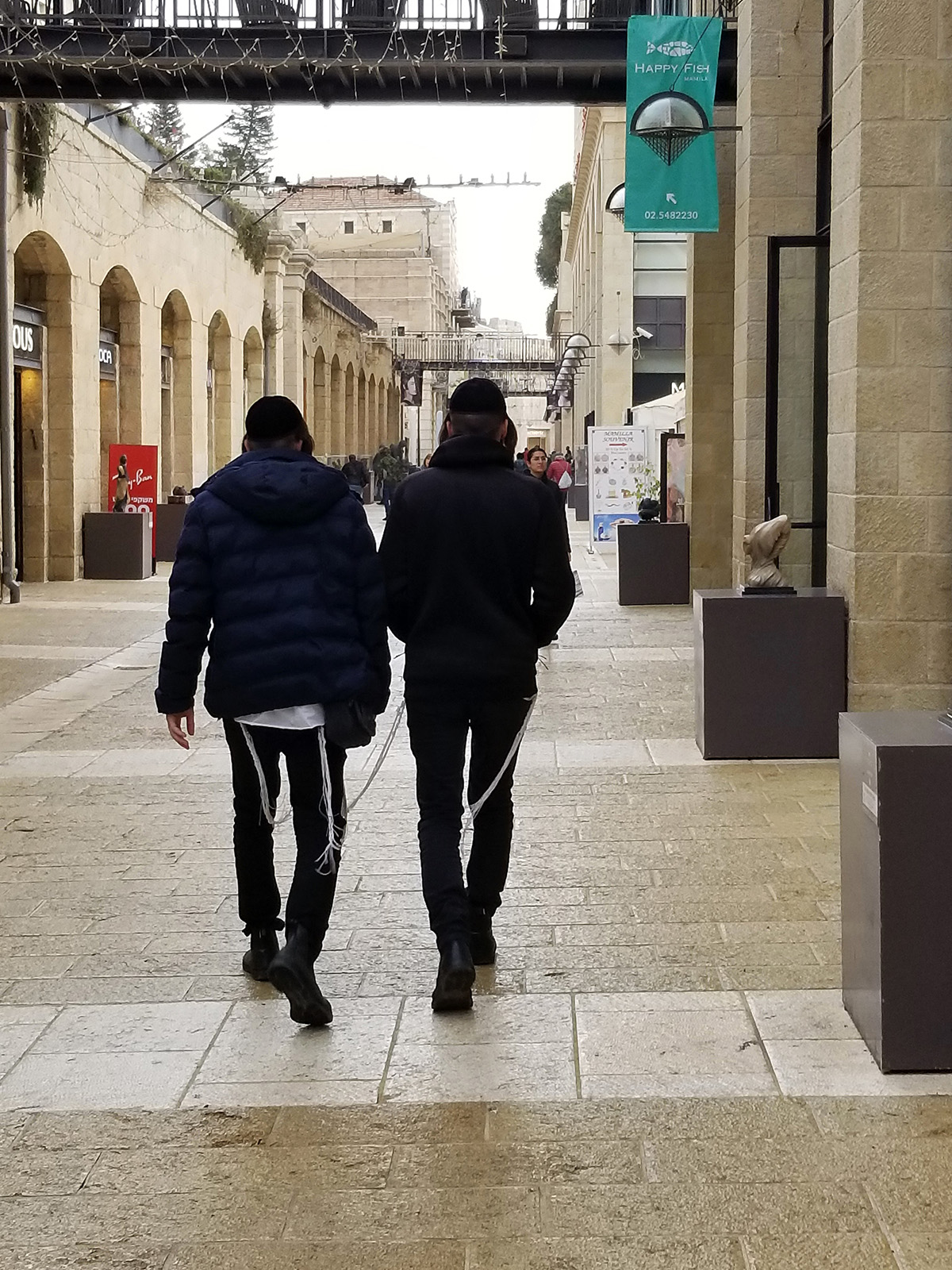 The Mamilla Shopping center.
The Mamilla Shopping center.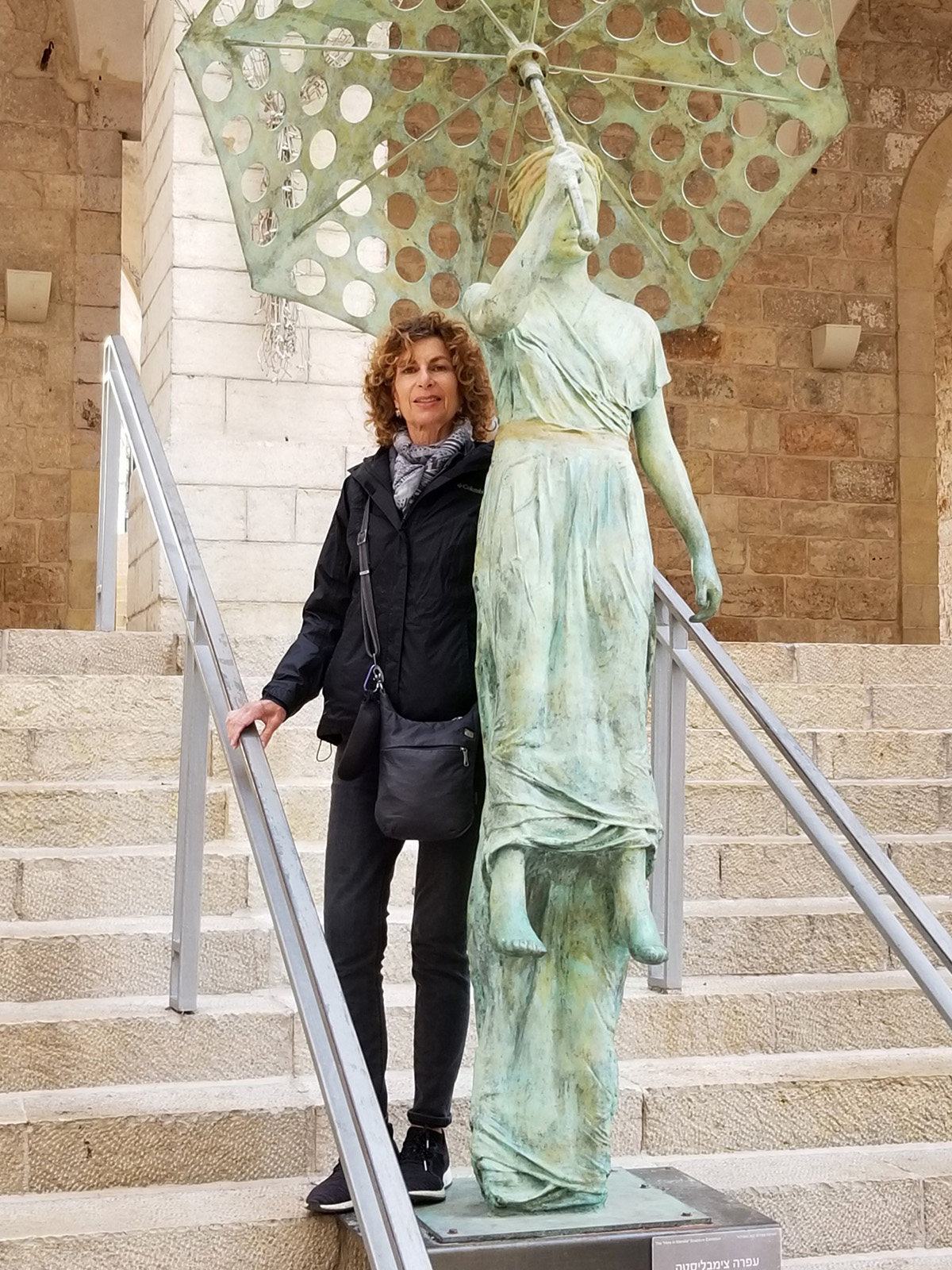 Sculpture in the Mamilla shopping center.
Sculpture in the Mamilla shopping center.As you enter The Jaffa Gate, step back thousands of years in time as you are greeted by the Tower of David and the Citadel, an ideal place to begin your exploration of the Old City. The tower museum tells the story of Jerusalem over the past three thousand years, from biblical days to the present. A virtual reality tour and simulations of Jerusalem’s citadel, narrow stone streets, palaces, and the ancient Jewish temple, give one a visual idea of the appearance of Old Jerusalem in the 1st century BCE, during the reign of King Herod.
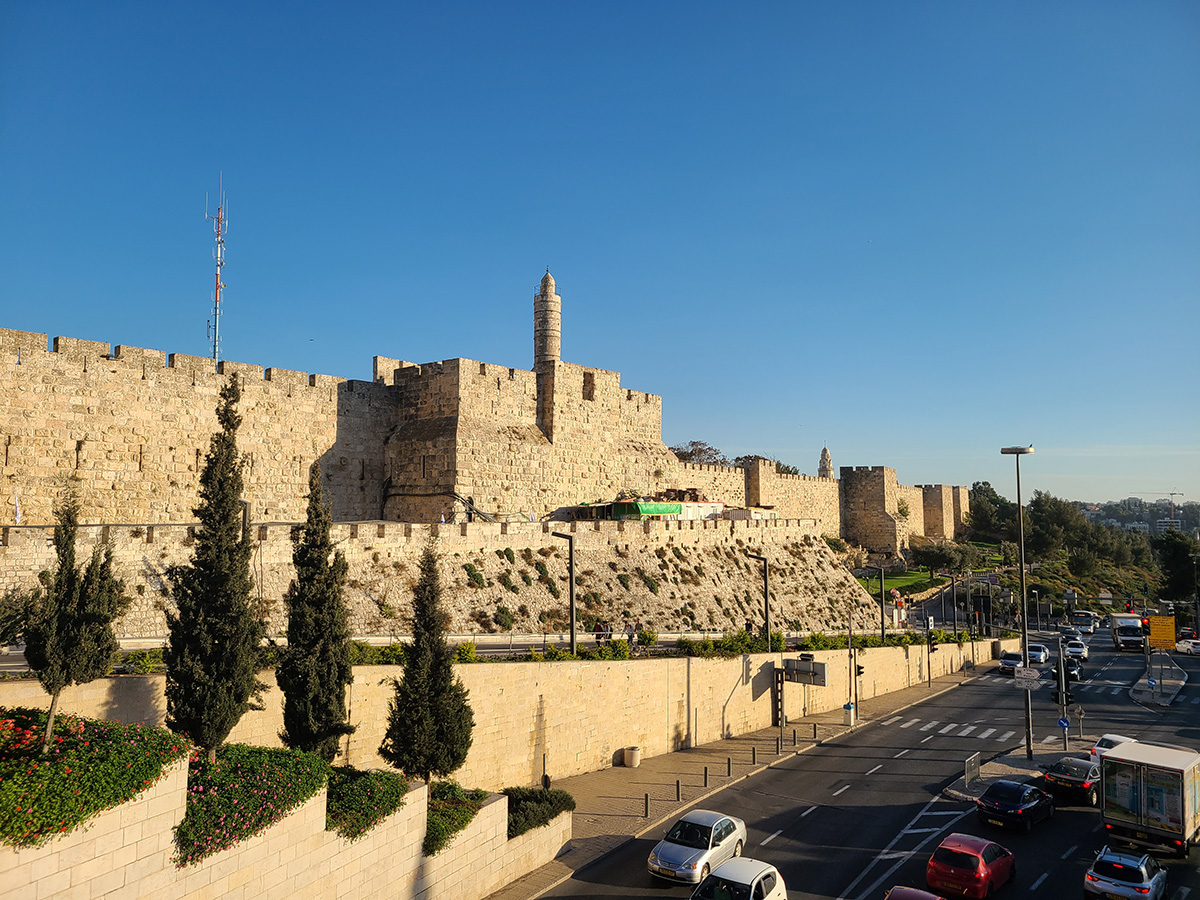 The tower of David and the Citadel.
The tower of David and the Citadel.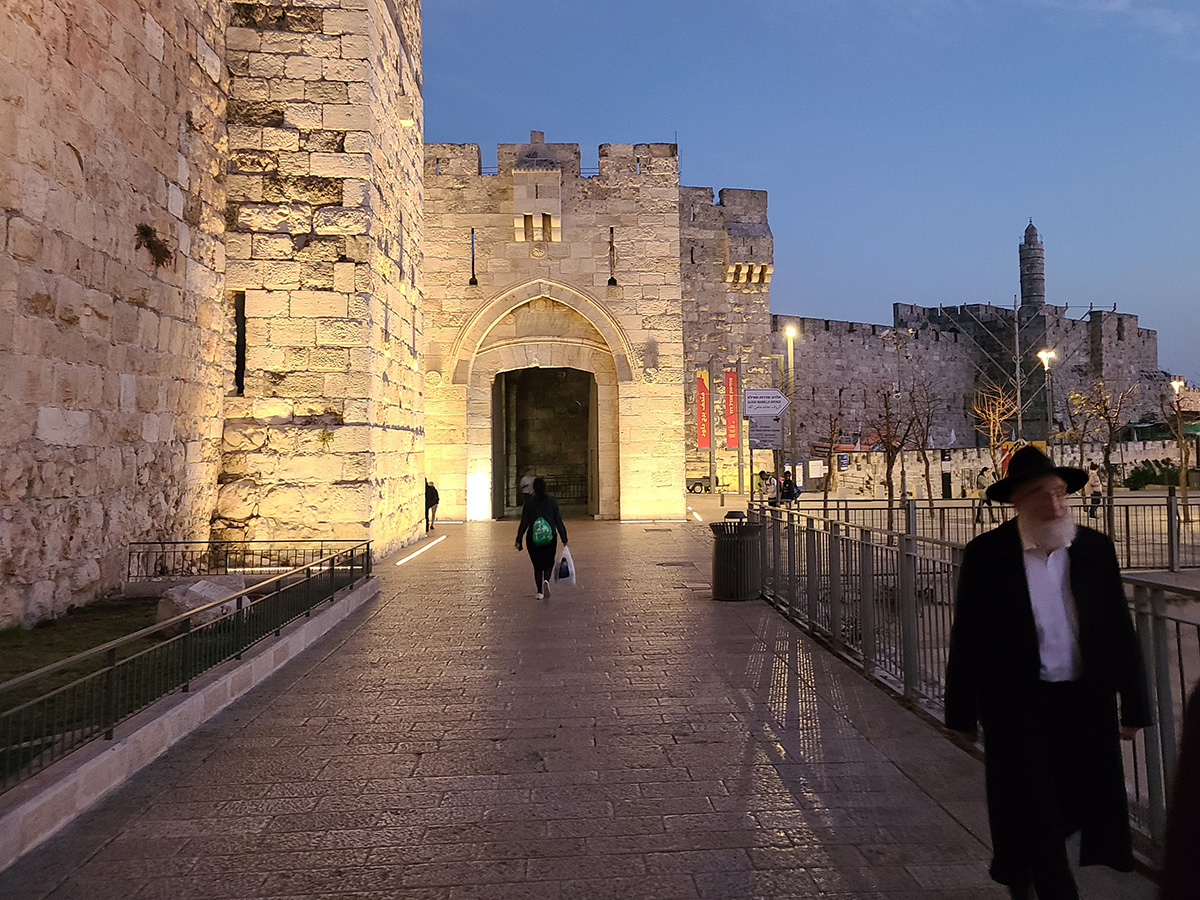 The entrance to the Jaffa Gate. The Tower of David and The Citadel are on the right.
The entrance to the Jaffa Gate. The Tower of David and The Citadel are on the right.From the Observation Deck at the top of Pezael Tower, one has an unobstructed panoramic view of the city of Jerusalem – both old and new – and a perspective of the four quarters: Armenian, Jewish, Muslim, and Christian. In the distance, the Mount of Olives, Mount Scopus, and Moab Mountains create a picture-perfect backdrop to this beloved, ancient city.
Before entering the bustling Armenian Quarter, which lies straight ahead, make a right turn and walk five minutes until you reach the Armenian Patriarchate church of St. James. It’s easy to miss, so be on the lookout for the courtyard that leads to the church. It’ll be on your left. Find out when there will be a prayer service and if any upcoming religious ceremonies will take place during your stay.
The interior is magical. Shards of sunlight filter through the windows casting a soft glow over the wall tiles, paintings, and hundreds of dangling chandeliers. In the evenings, it sparkles with lights when the priests, dressed in their long robes, are immersed in prayer and holy rituals.
We were fortunate to witness a fascinating, unforgettable ceremony that transported us to another world and another time.
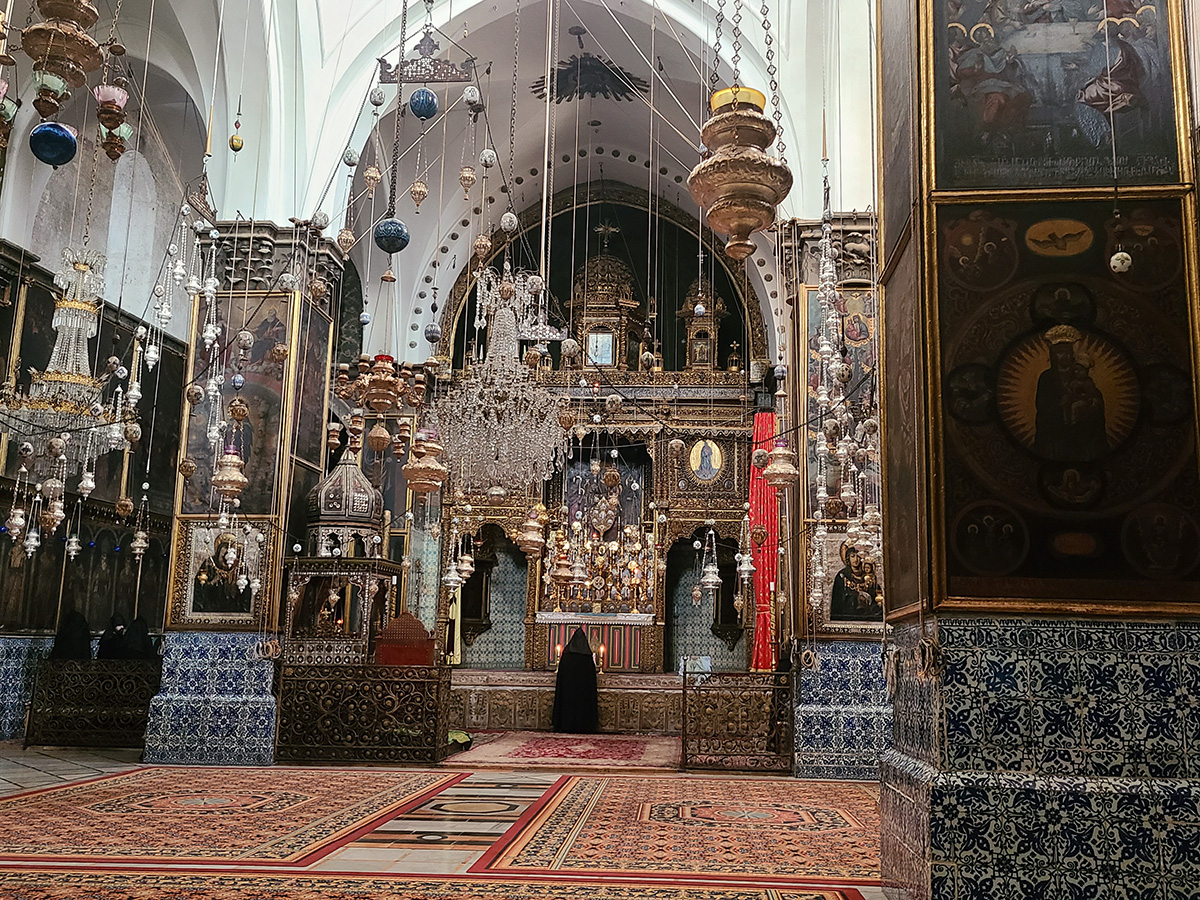
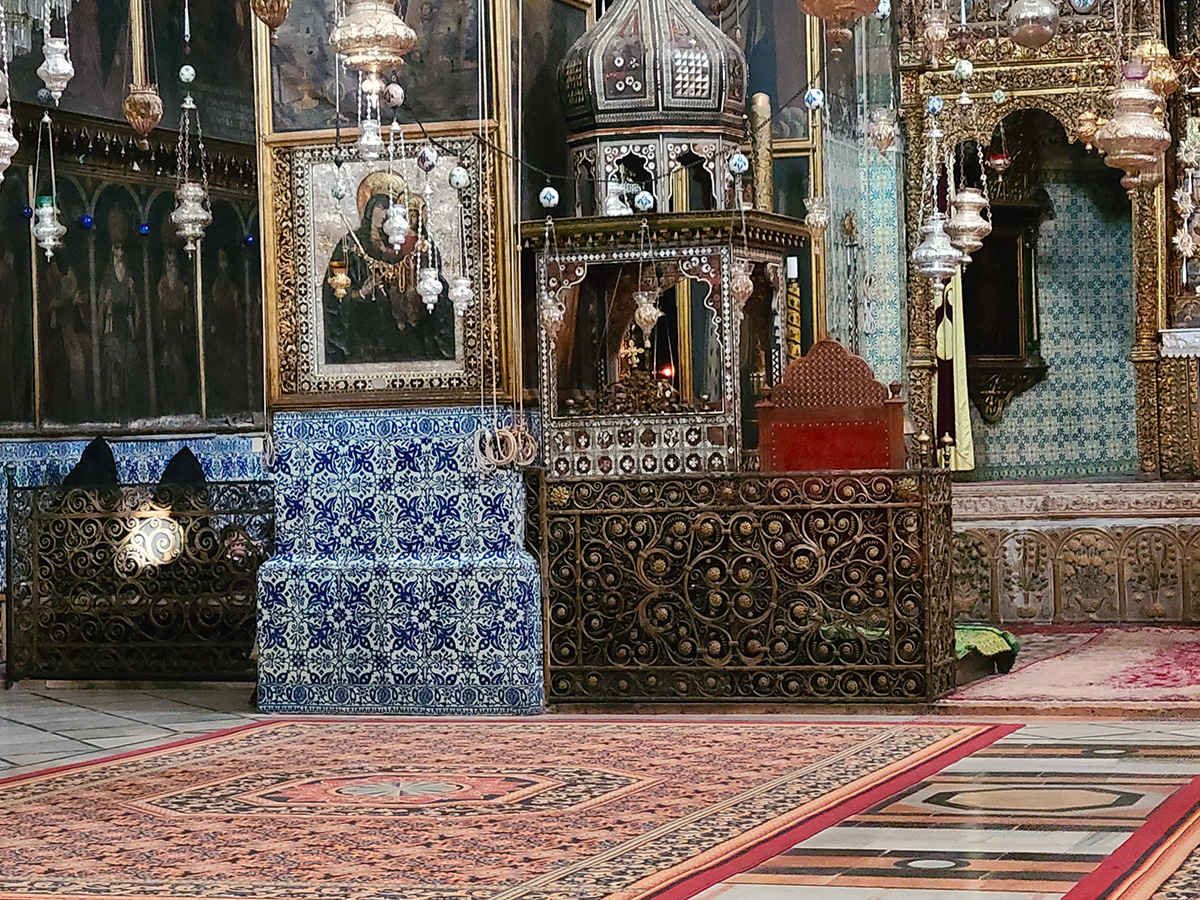
The narrow, ancient, slippery stone lanes of the Old City overflow with life and utterly captivating energy.
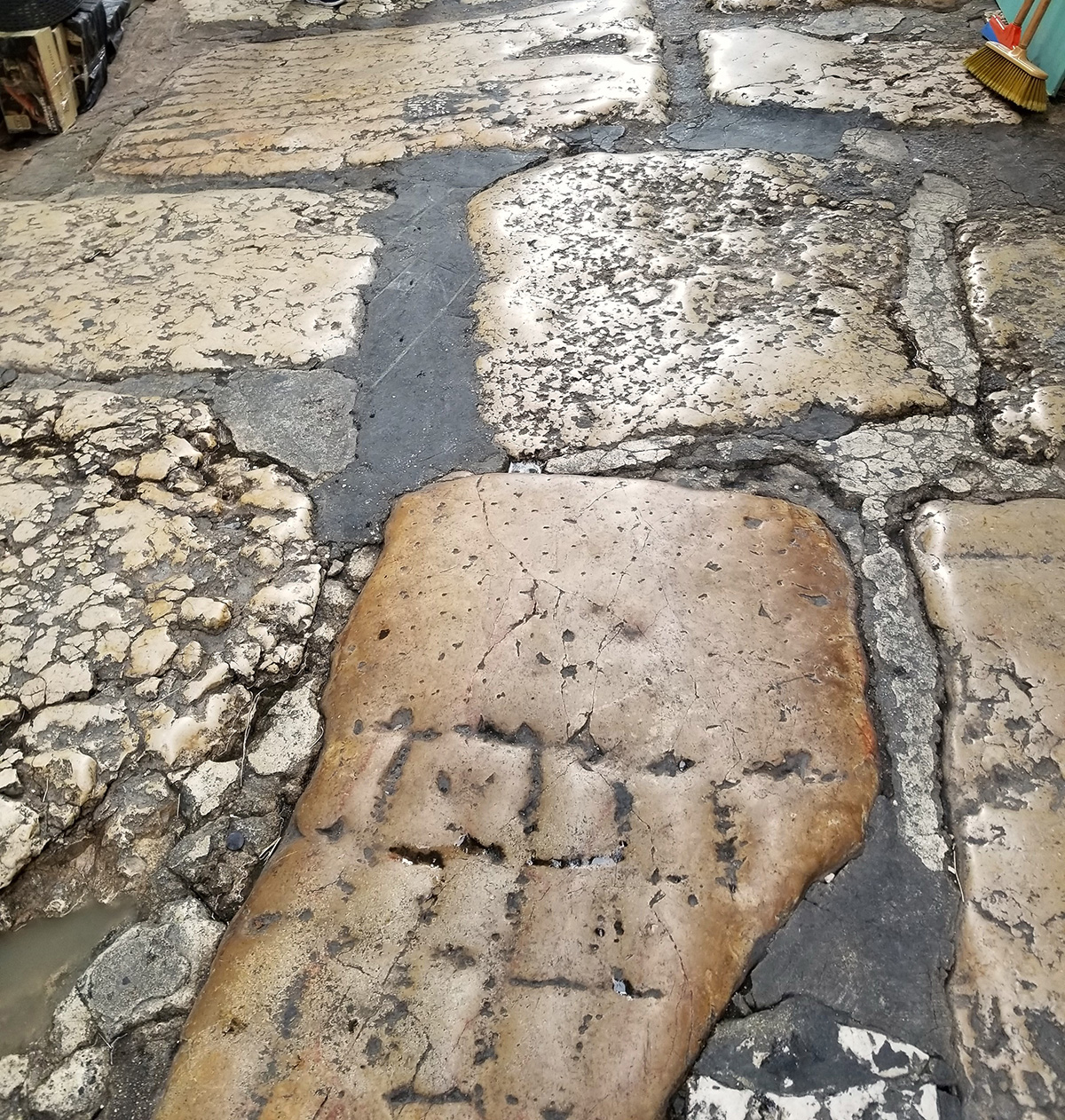
The aroma of exotic spices hangs in the air. Displays of dried fruit and nuts are arranged in a checkerboard of colors—jewelry and trinkets galore glitter in display cases. Long, patterned, multicolored caftans and shawls hang from hooks attached to the old stone walls.
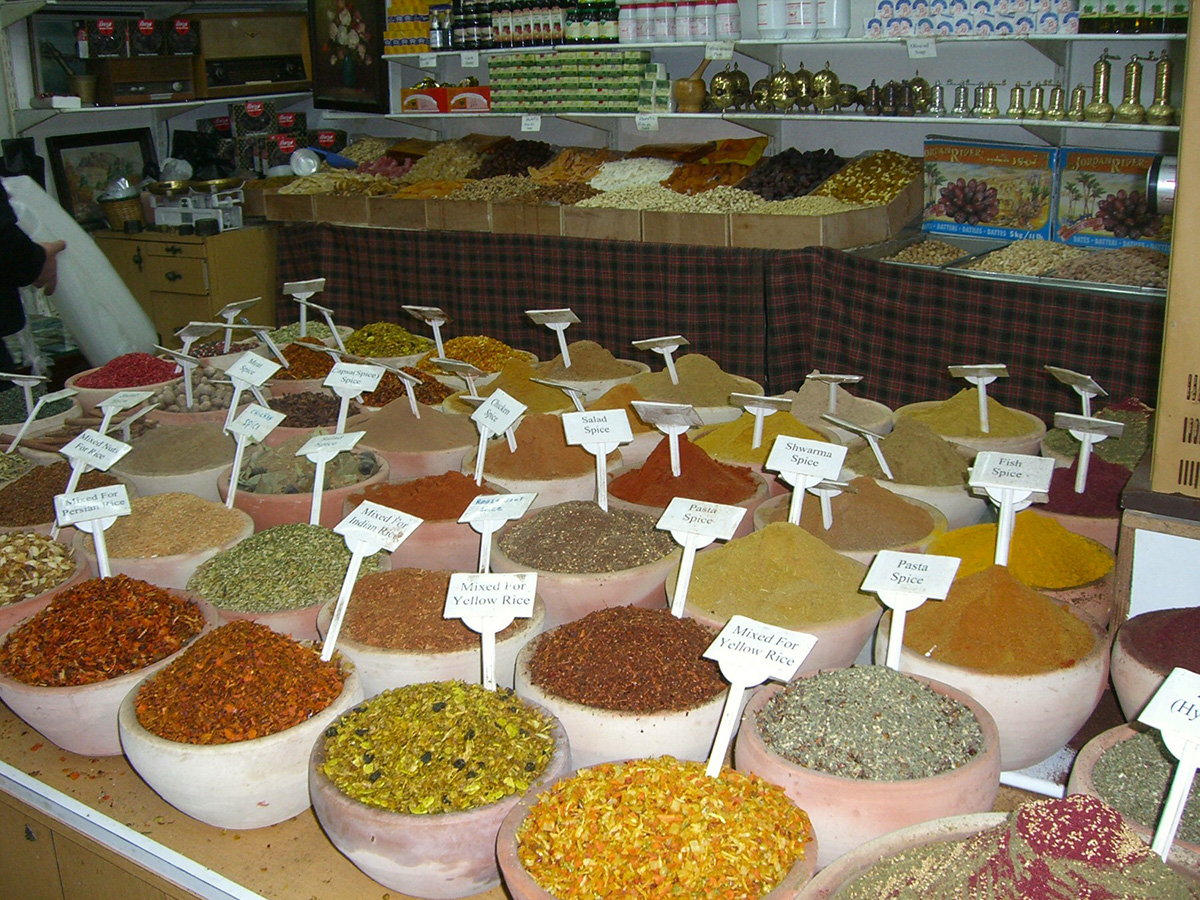
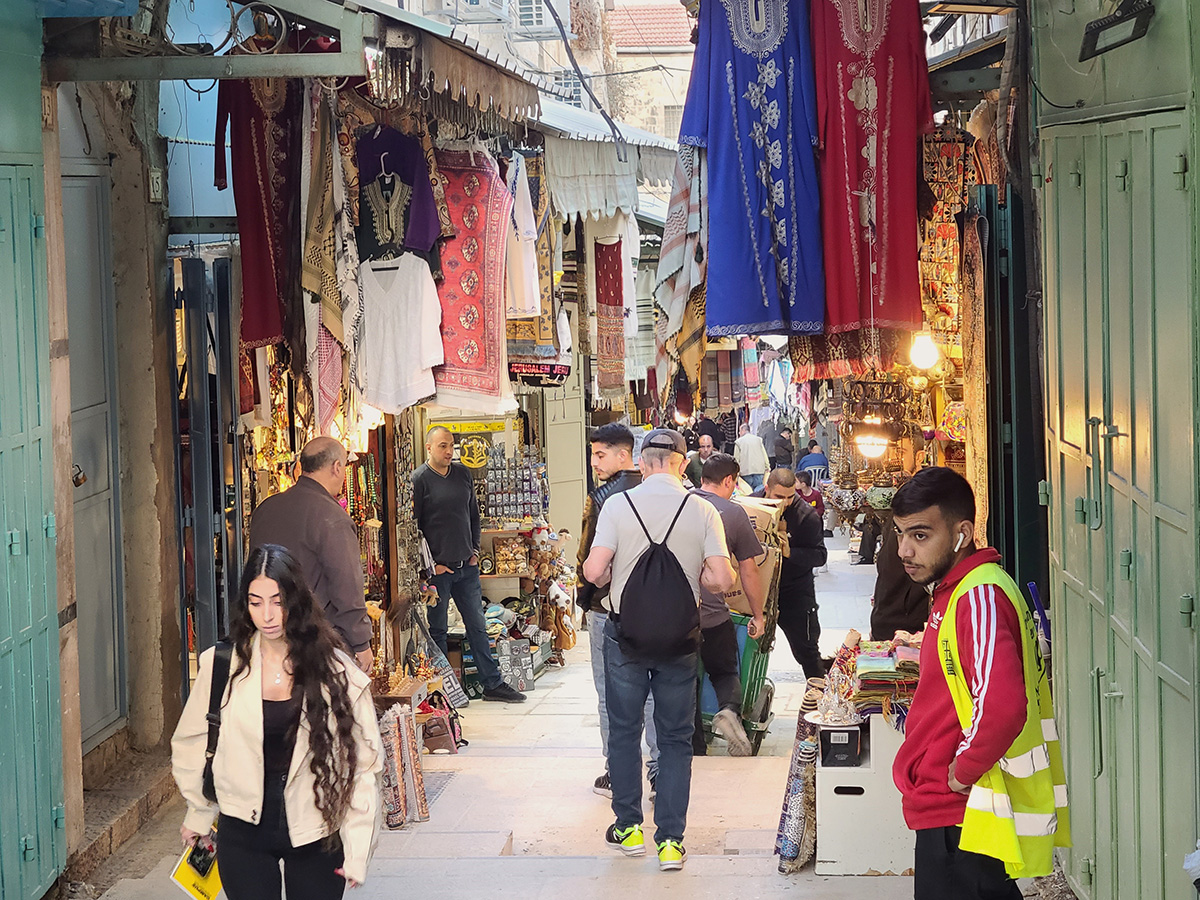
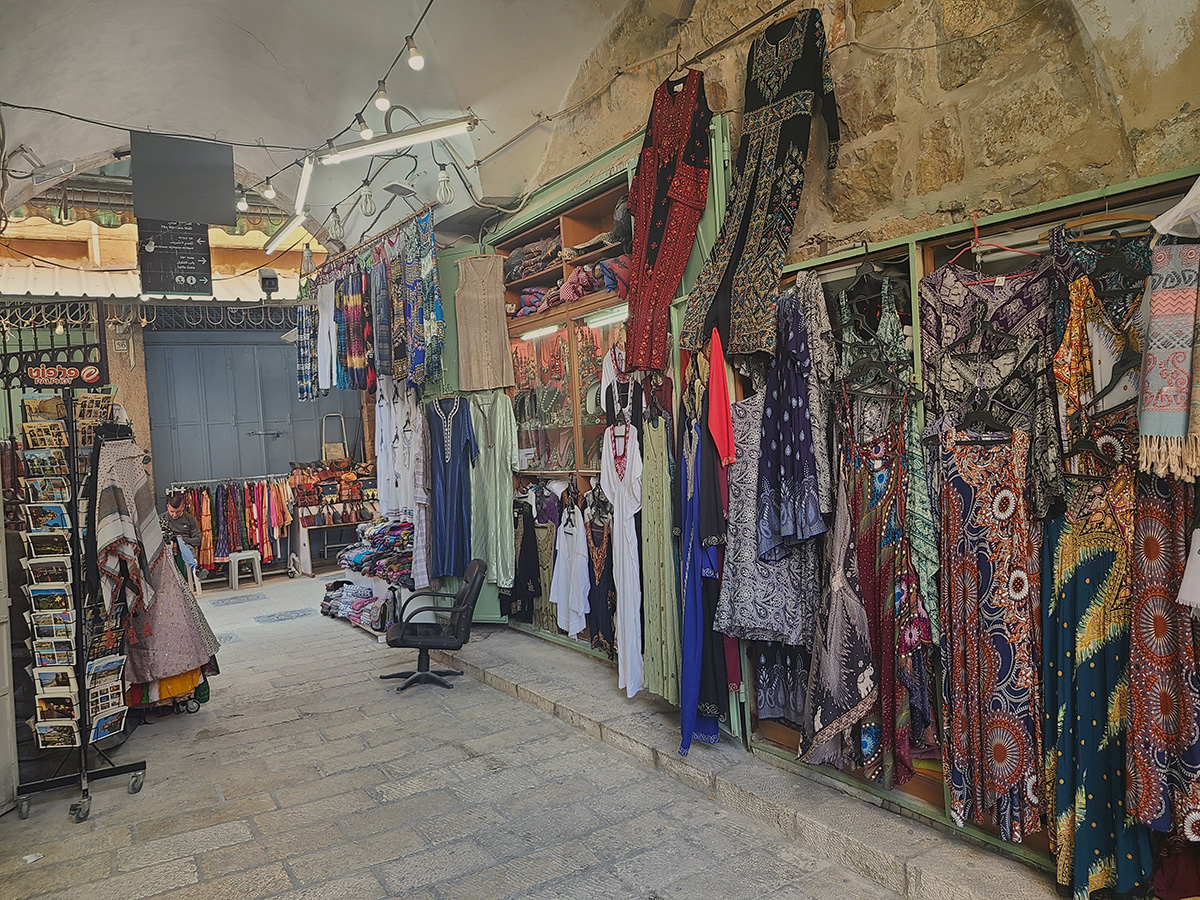
Young men transporting trays of freshly baked, flat, Arab bread on their heads maneuver skillfully through the pedestrian chaos. Store owners call out to passersby enticing them to step into their stores. It’s a vibrant smorgasbord of sights and sounds.
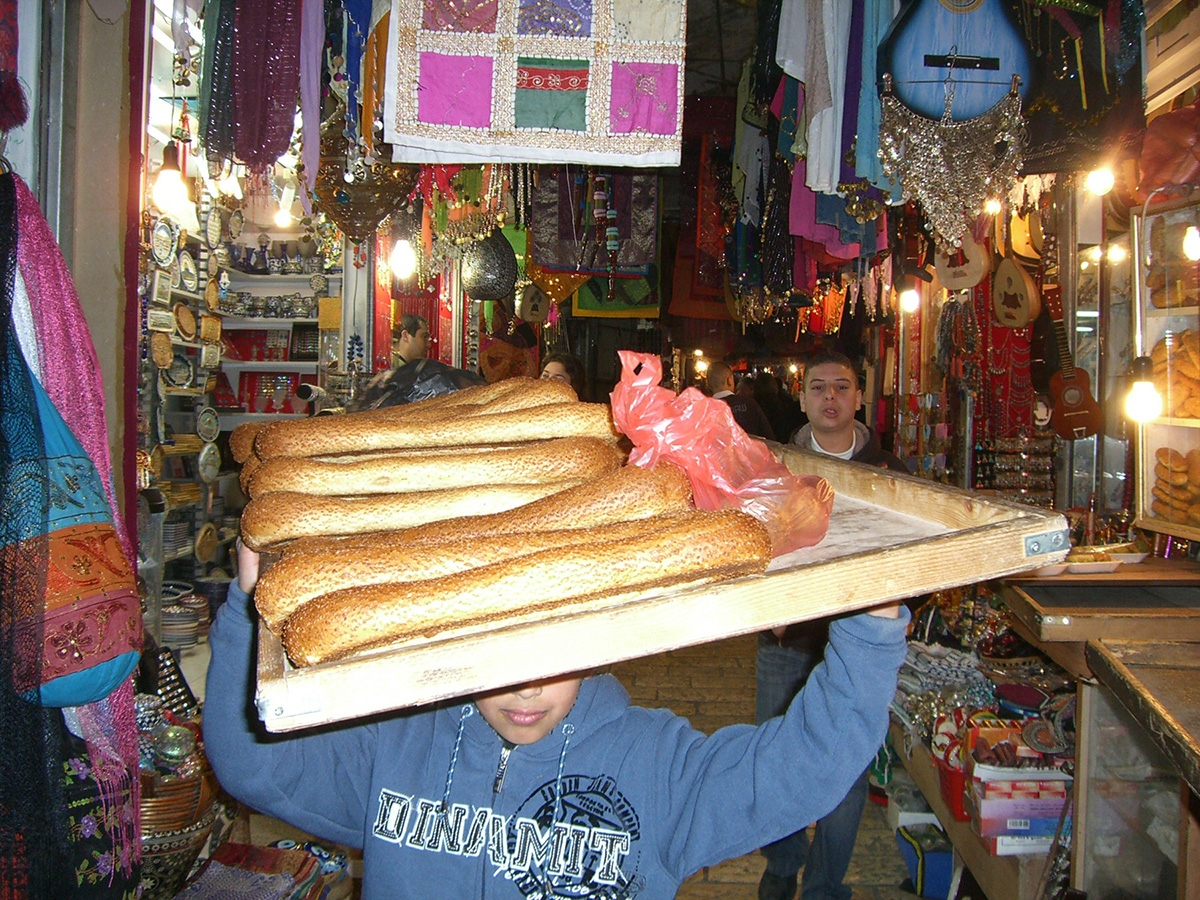
A right turn at the end of the main artery of the Armenian Quarter leads towards the excavated Roman Cardo and Jewish Quarter.
Most cities built during the time of the Roman Empire had Cardo: Streets flanked by impressive columns where daily markets were held.
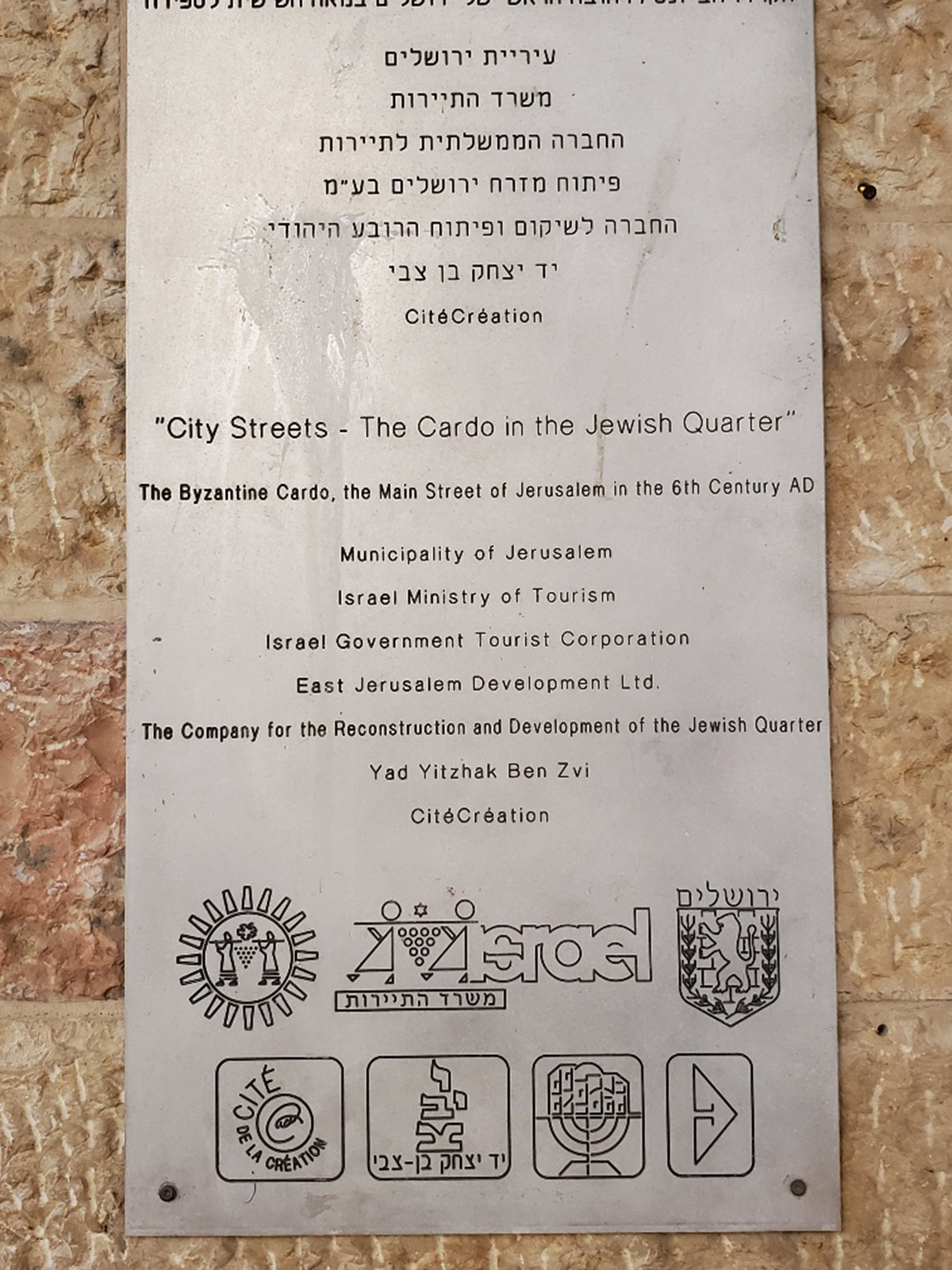
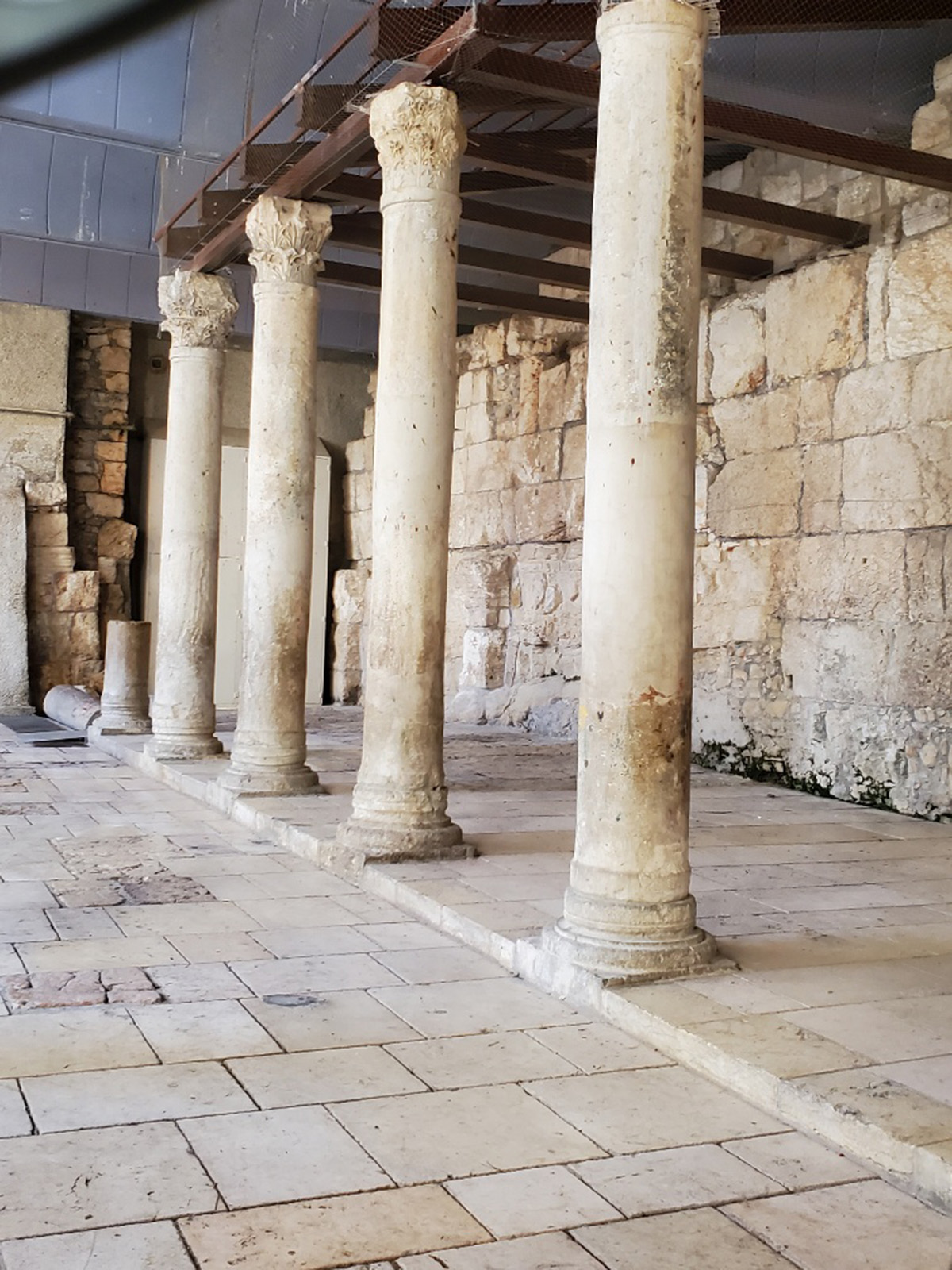
Murals that line the historic Jerusalem Cardo walls give one a colorful picture of life on this bustling street during the 6th century.
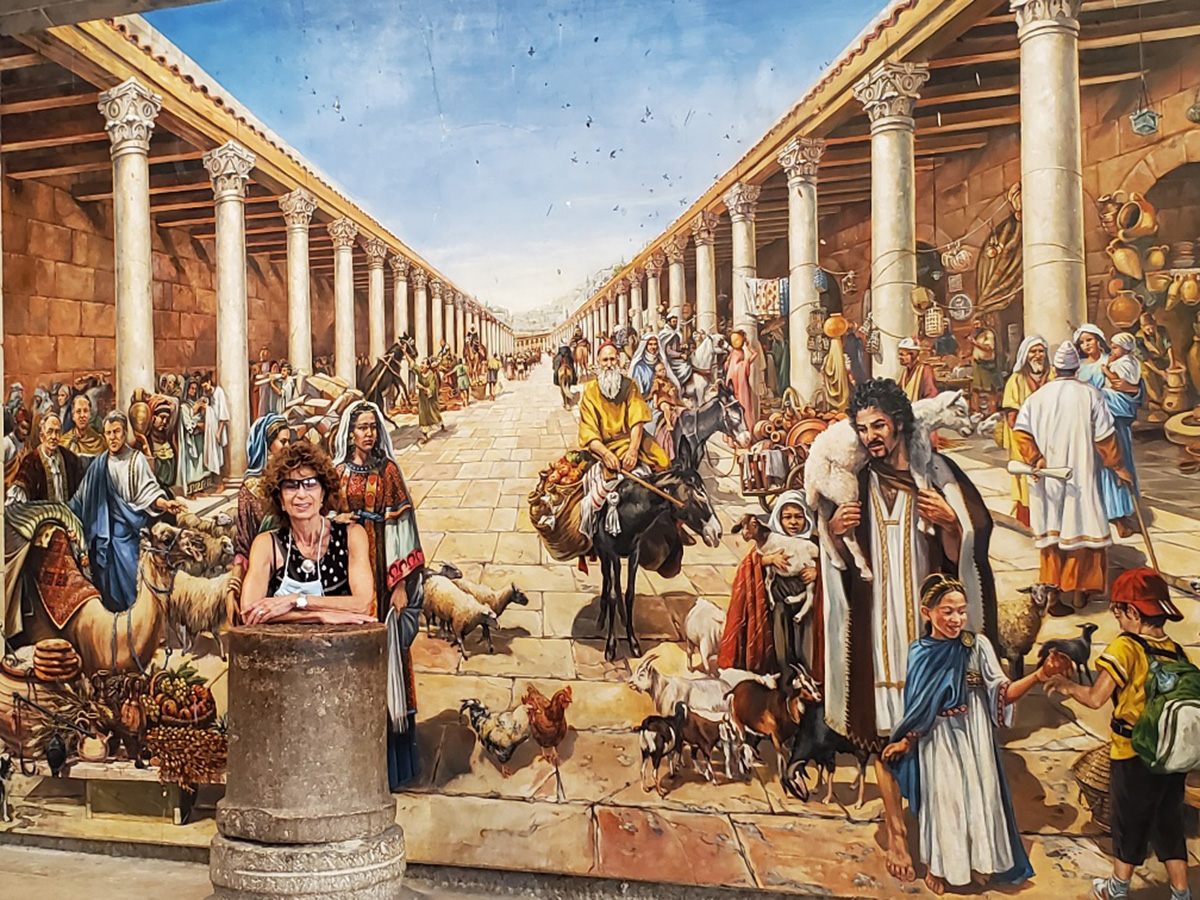
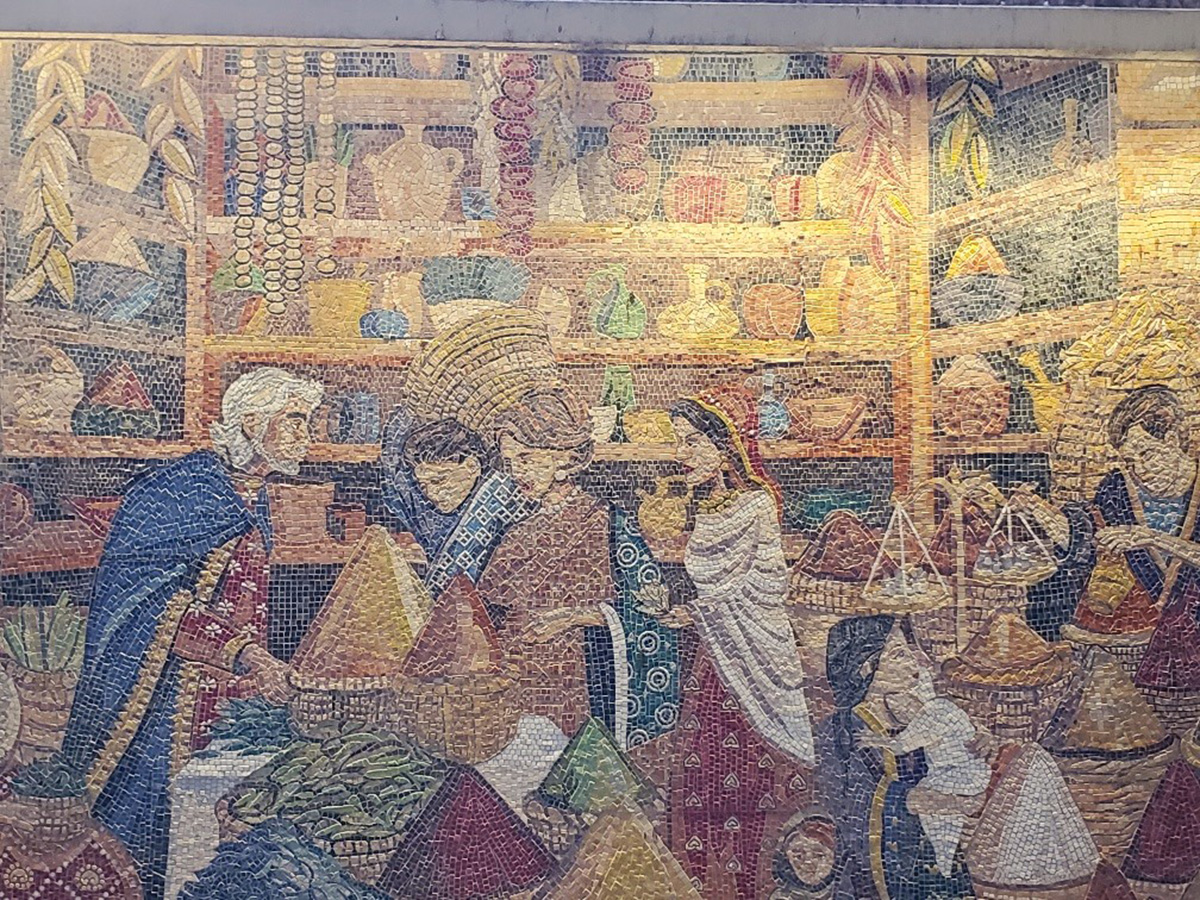
From the Cardo, enjoy meandering along the twists and turns of the Jewish Quarter towards the Western Wall.
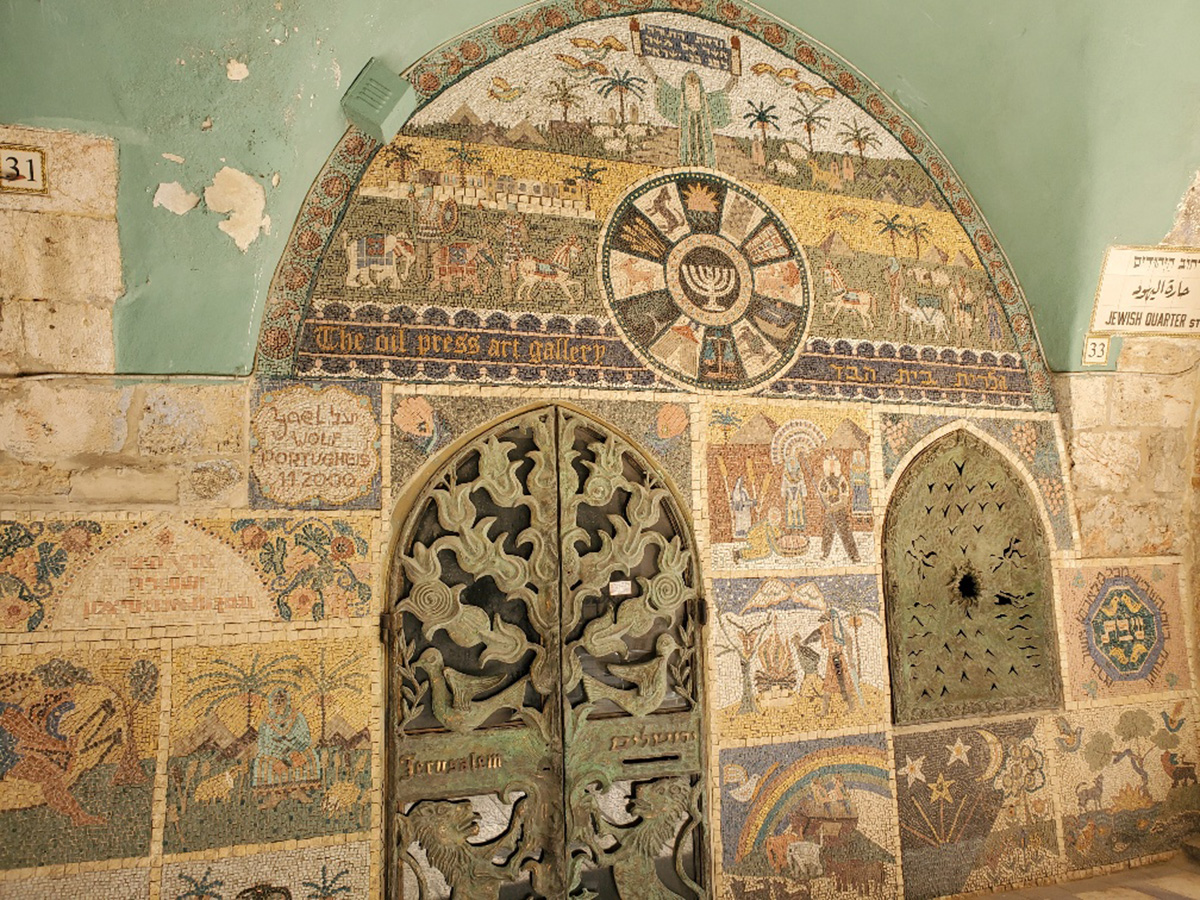
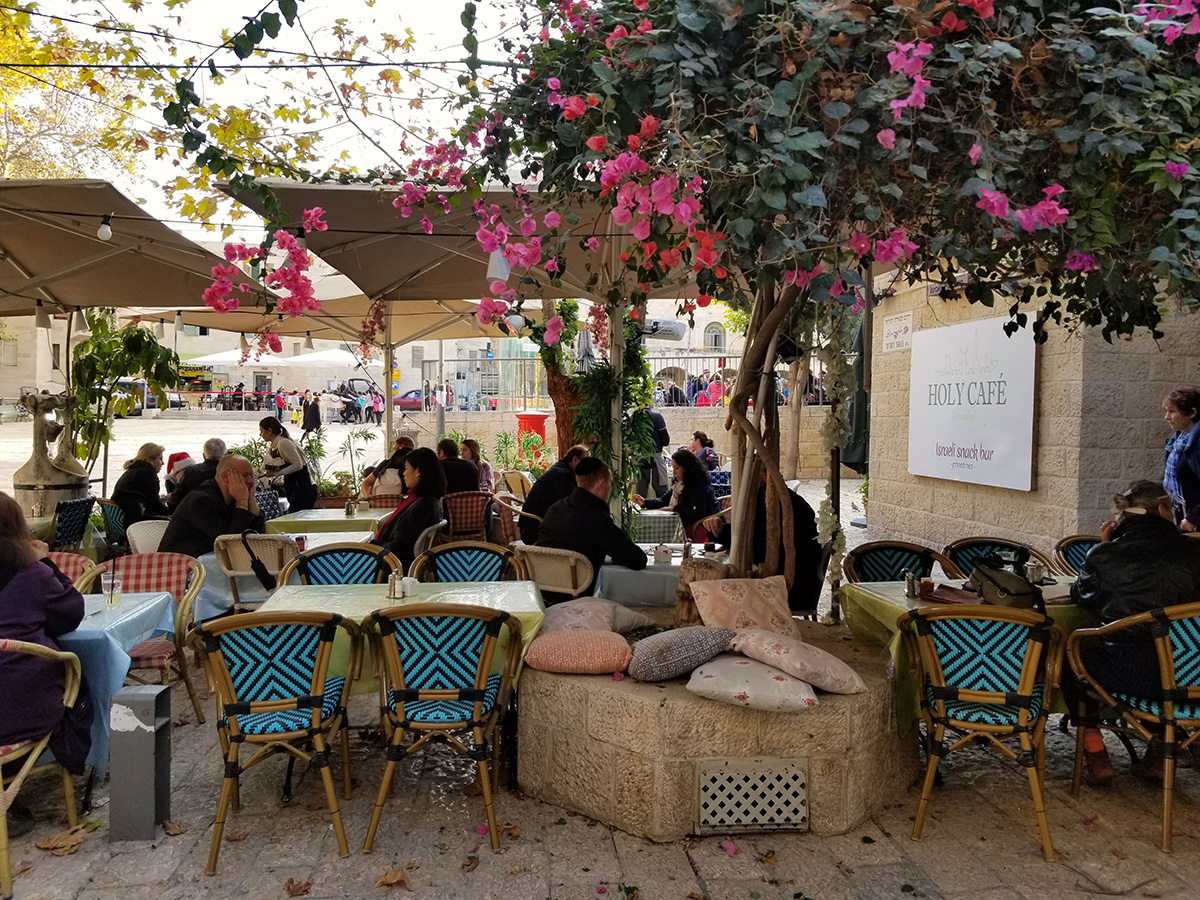
Stop along the way for thirty minutes or so at the Burnt House, a five-minute walk from the wall. Don’t be shy to stop and ask pedestrians or storekeepers to point you in the right direction. The Burnt House Museum/Katros House, was discovered during excavations in 1970. It is believed that it was occupied by the wealthy Katros family, who served as priests in the temple. The Romans destroyed the house during the burning and destruction of Jerusalem in 70AD. Archaeologists and historians believe it is only a small part of a large complex that remains buried under the Jewish Quarter.
A visit to the Burnt House gives one insight into how wealthy families lived during that era and the events that led to the Roman destruction of the Second Temple.
The Western Wall/ The Kotel – is one of the holiest sites in Jerusalem. It is all that remains of the Second Jewish Temple (586BC – 70 AD). Jews from around the world travel to the wall to pray. They write prayers on tiny pieces of paper and wedge them into the cracks between the stones of the wall.
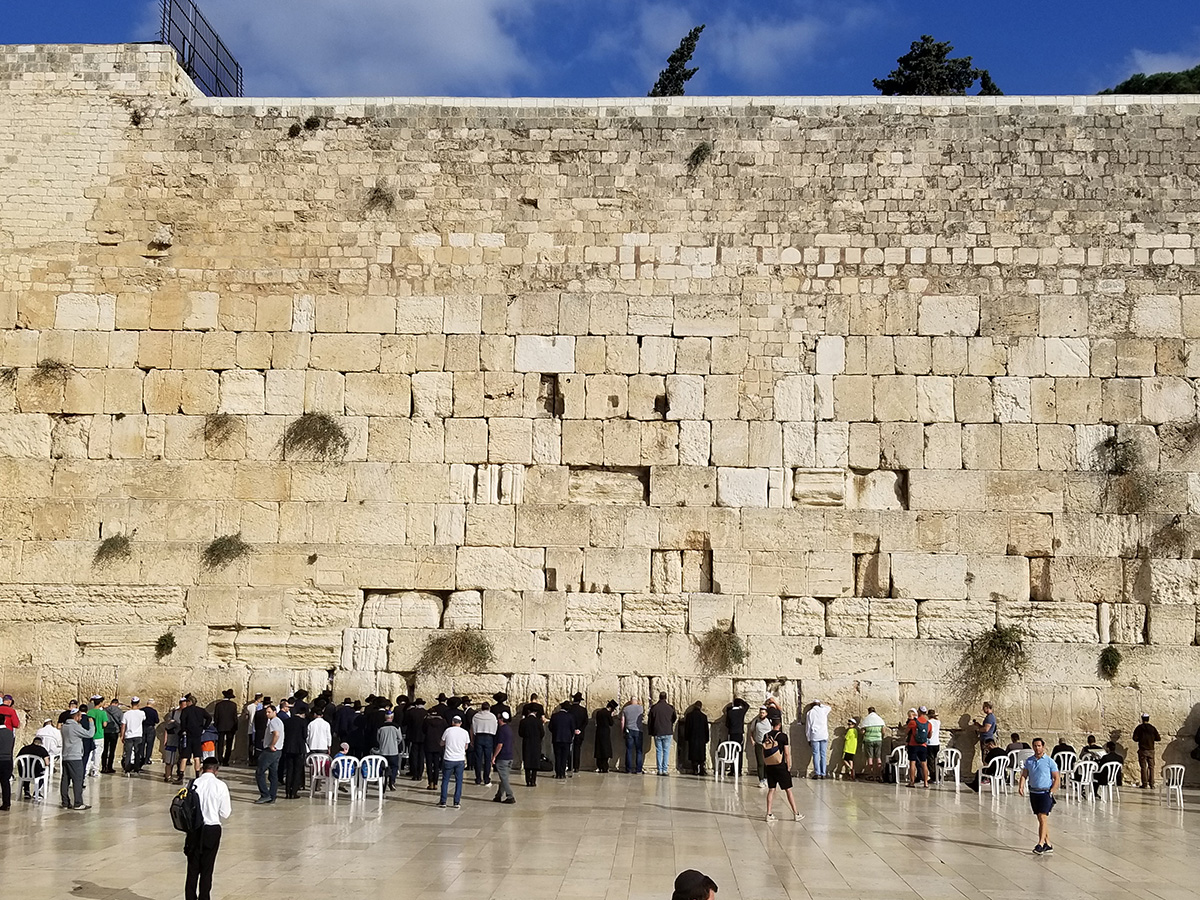
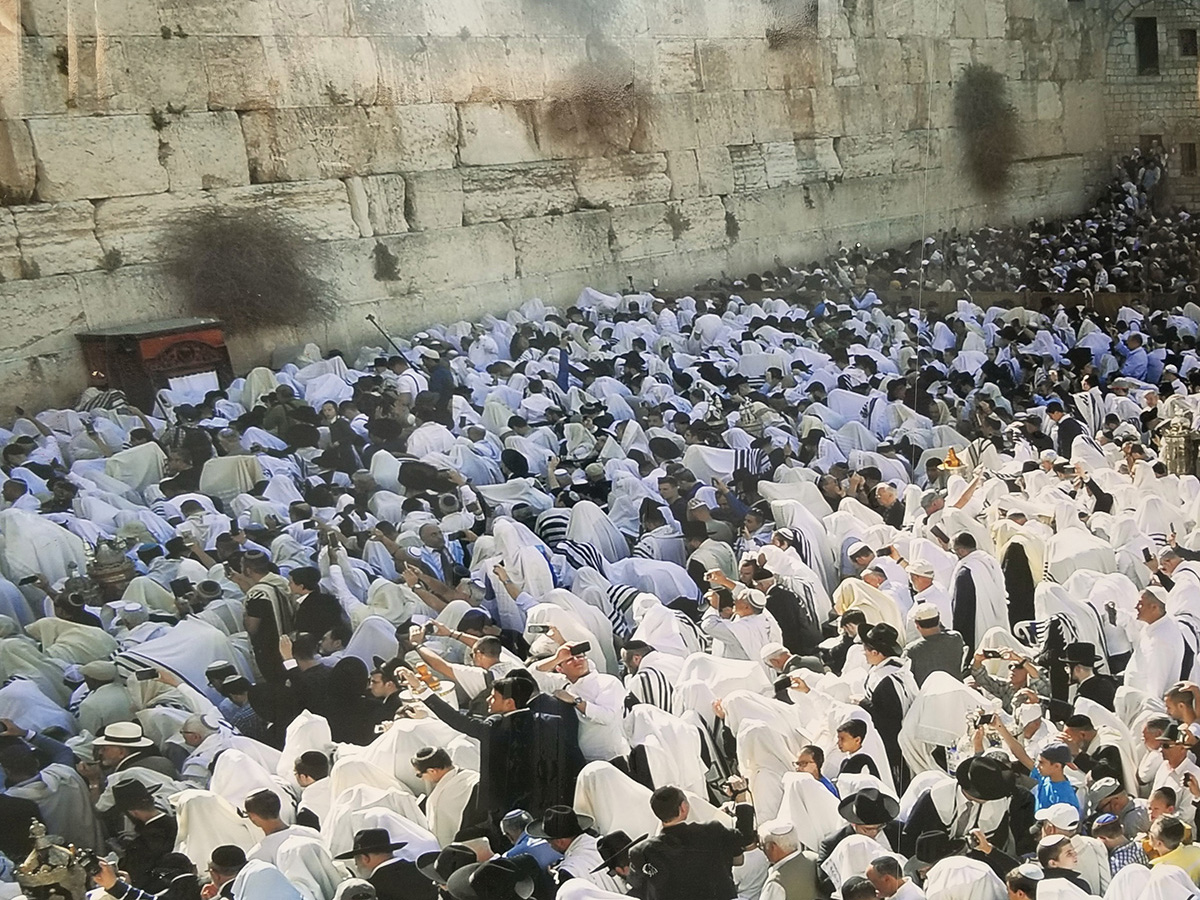
From the Jewish Quarter, make your way to the Muslim Quarter. Wander along the busy lanes and settle down to lunch at one of the many family-run, atmospheric restaurants serving excellent hummus, kababs, salads, and fries cooked to crunchy perfection. End your meal with scrumptious homemade baklava.
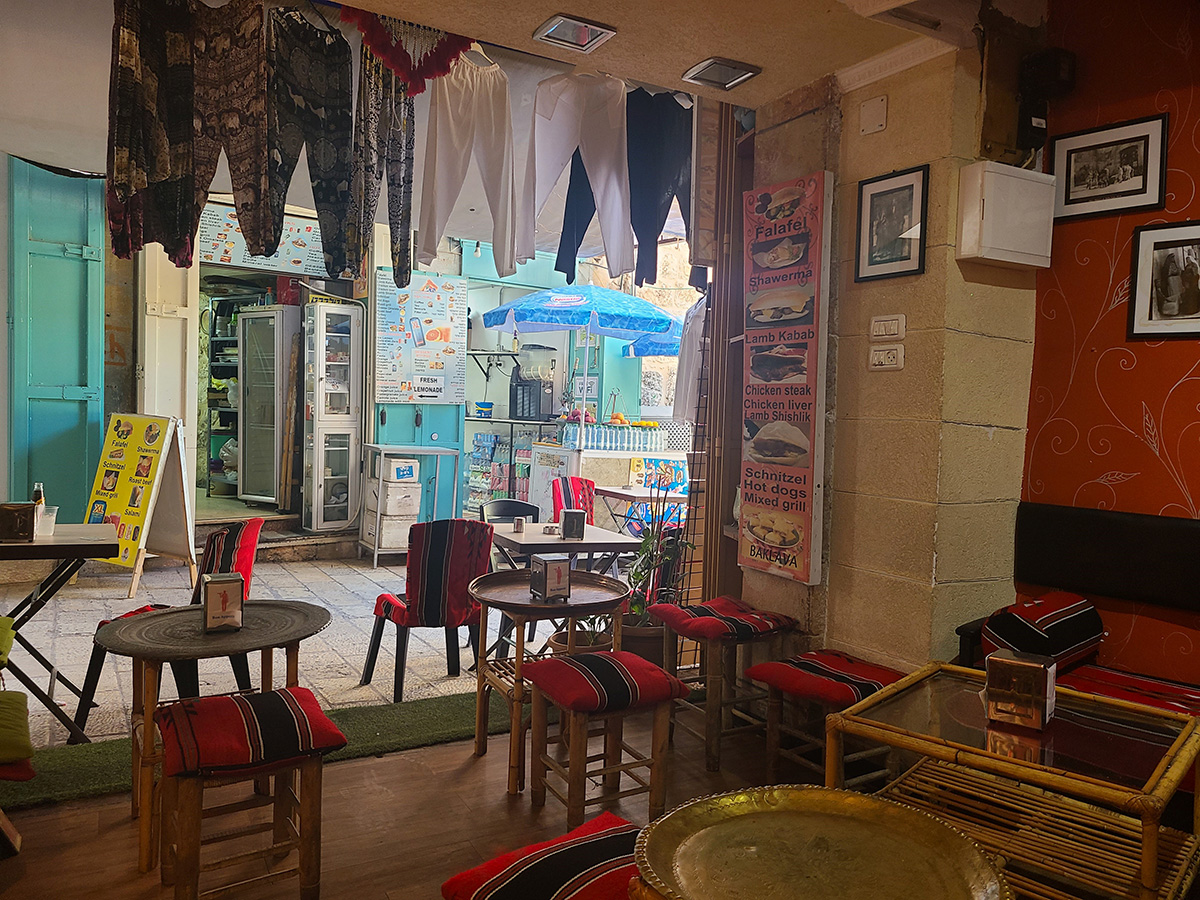
The Dome of the Rock and the Al-Aqsa Mosque. Muslims revere the site as it was from here that the Prophet Muhammed is believed to have ascended to heaven.
The Dome of the Rock, which was constructed between (685-691AD) is an Islamic shrine.
The Temple Mount – where the Al Aqsa Mosque and Dome of the Rock are situated – is also holy to Jews as it is the site of the First Jewish Temple built by King Solomon in 957BC and destroyed by the Babylonian King Nebuchadnezzar 400 years later.
The Al-Aqsa compound, dominated by the gold roof of the mosque, offset by the exquisite blue tiles and panoramic views, is breathtaking and serene. NOTE: Visitors can tour the site, excluding the Dome of the Rock. However, it is not advisable to attempt to visit the compound independently. Visit with a guided tour such as Jerusalem Mount of Olives and Temple Mount Tour, available every Wednesday, or take a comprehensive, easy, four-hour walking tour of the Old City with the tour company: Sandeman’s New Europe.
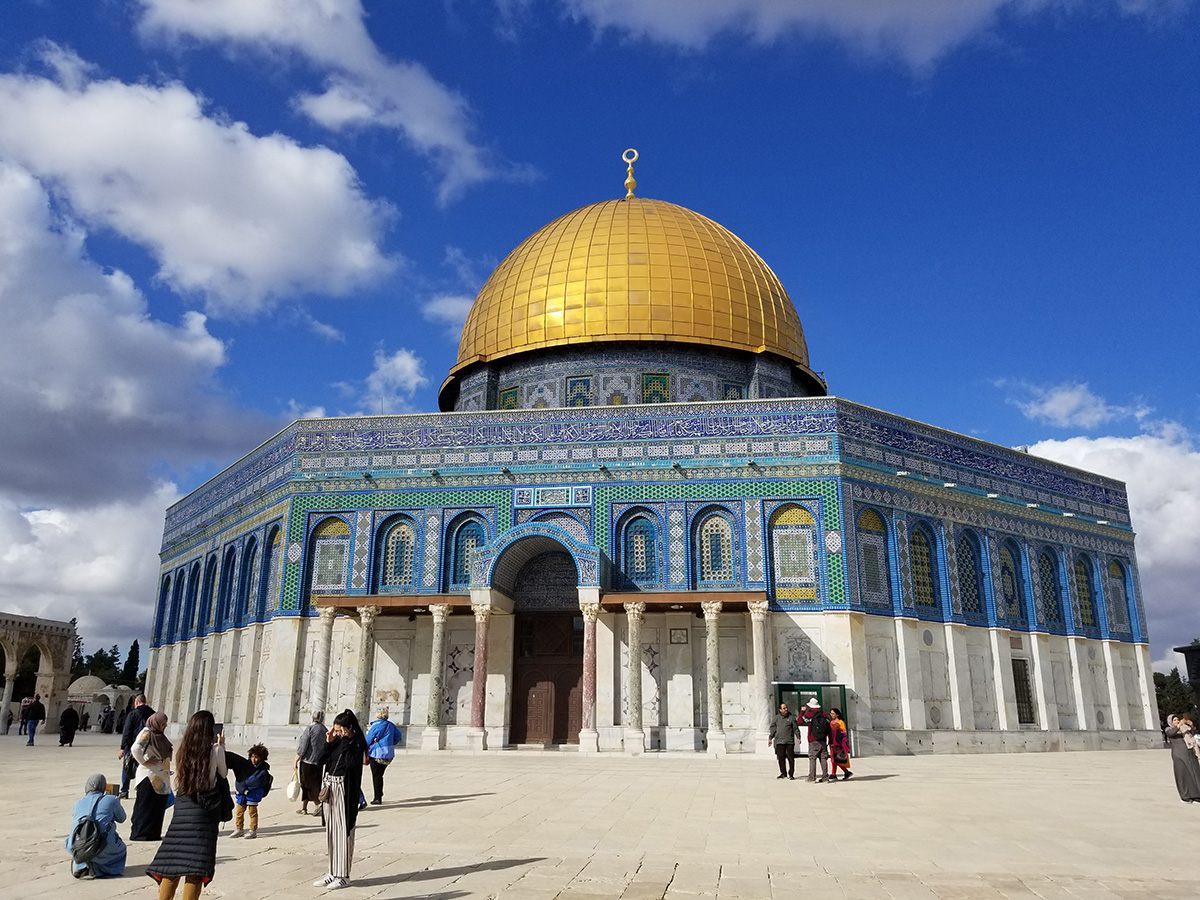
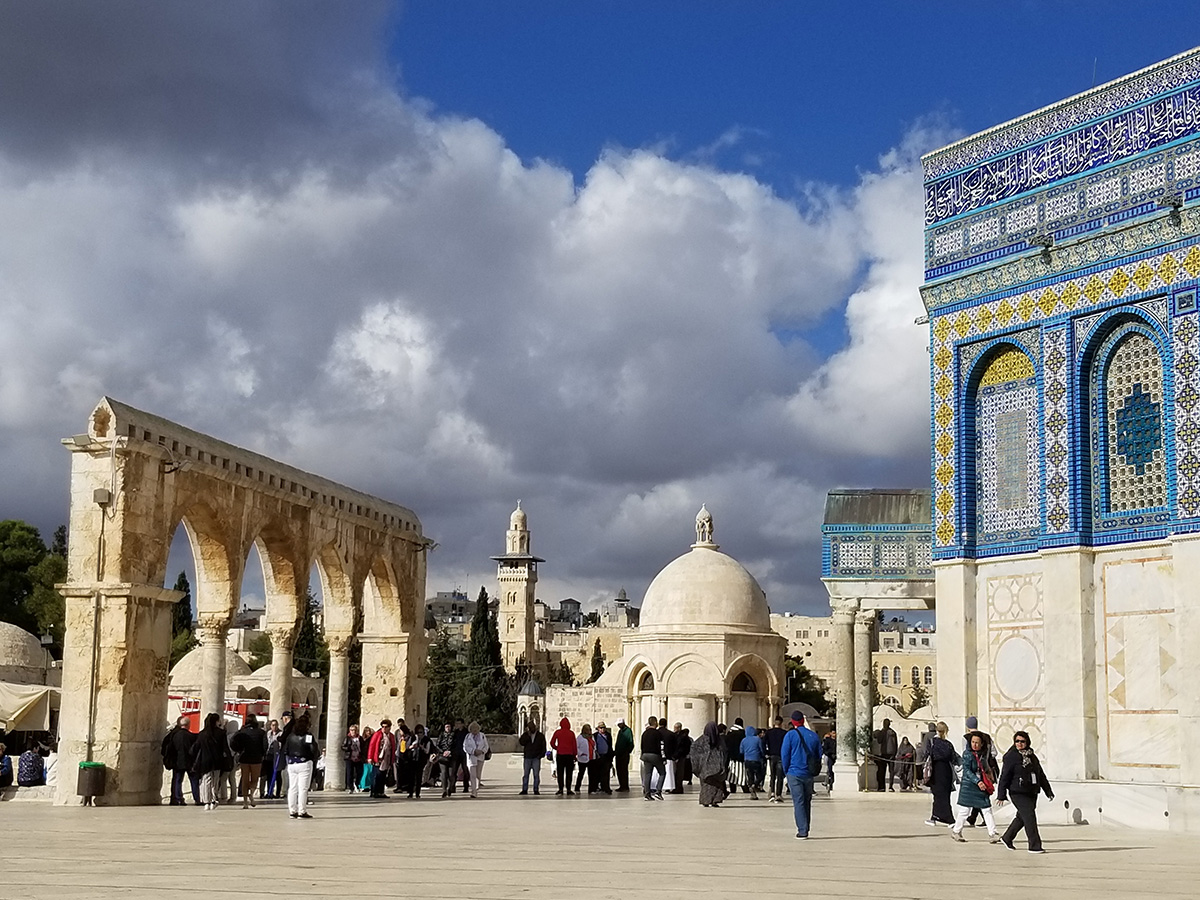
Next on the list of must-see sites are the Christian Quarter and The Church of The Holy Sepulchre.
The Arab Christian Quarter is our favorite place to enjoy a leisurely lunch sitting outdoors and immersing ourselves in our surroundings: The ringing of church bells, the call to the mosque, a multitude of languages, the diversity of dress styles, the mouthwatering aromas of kebabs on the grill and freshly baked Arab bread. Simple scenes, sounds, and smells that form an unforgettable collage of daily life in this vibrant, ancient city.
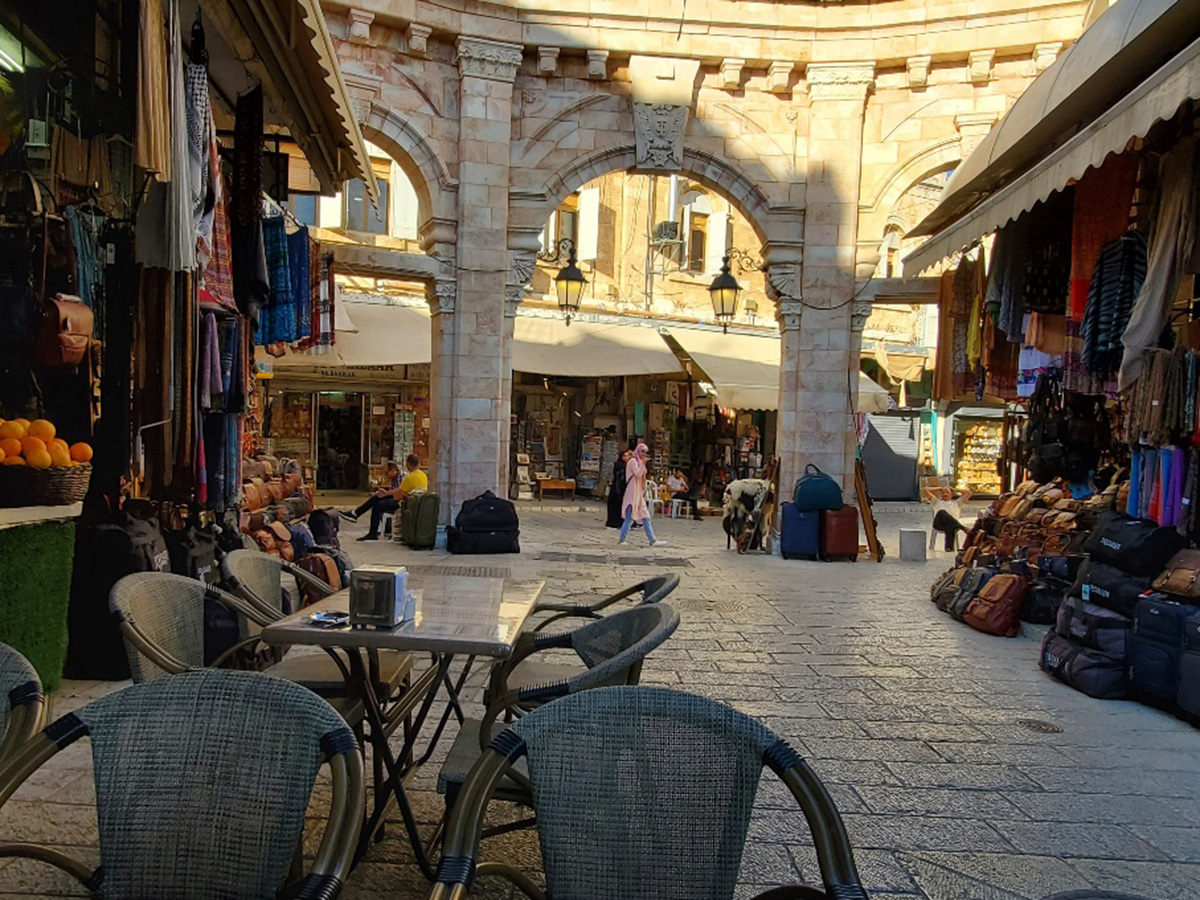

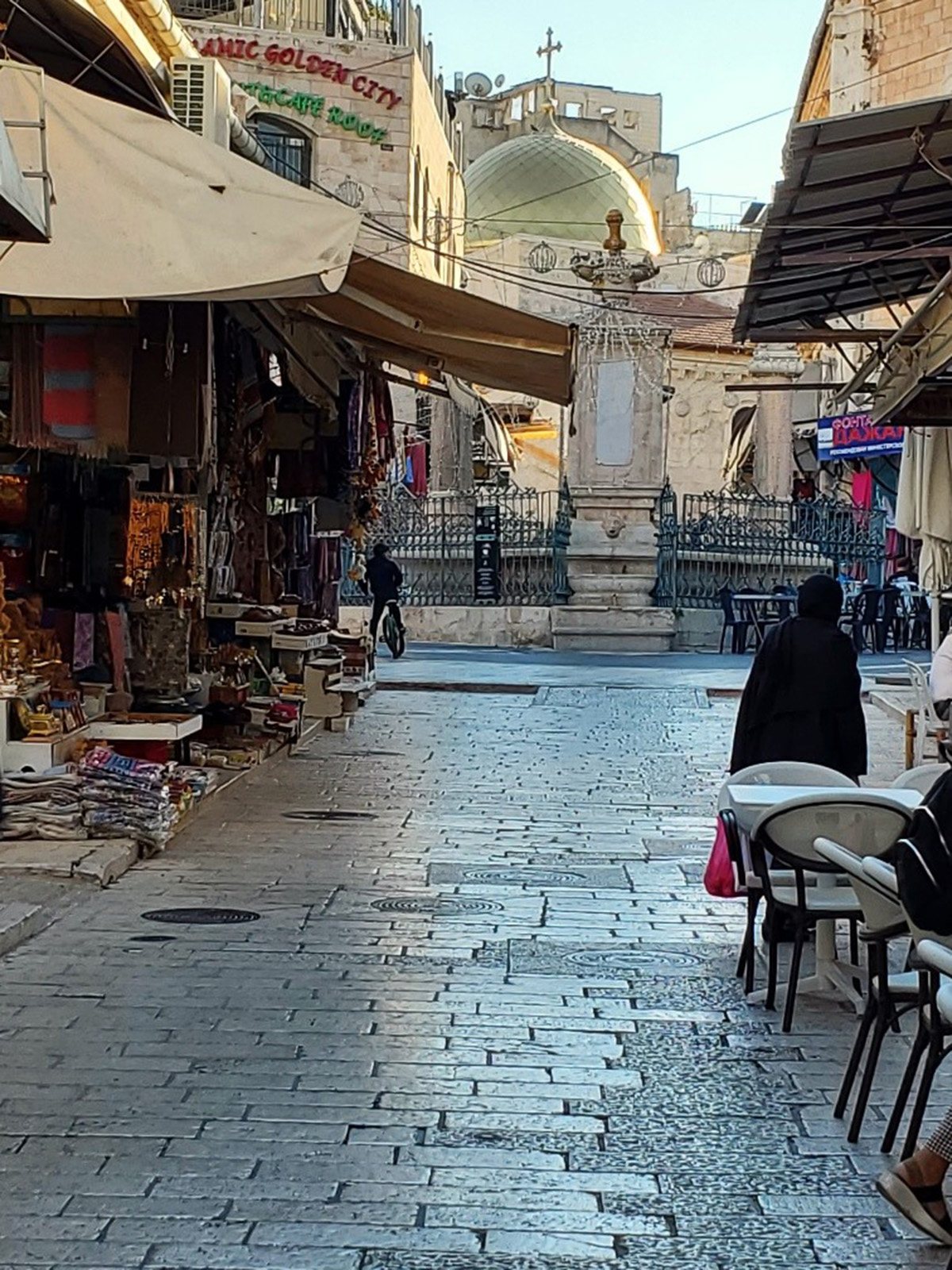
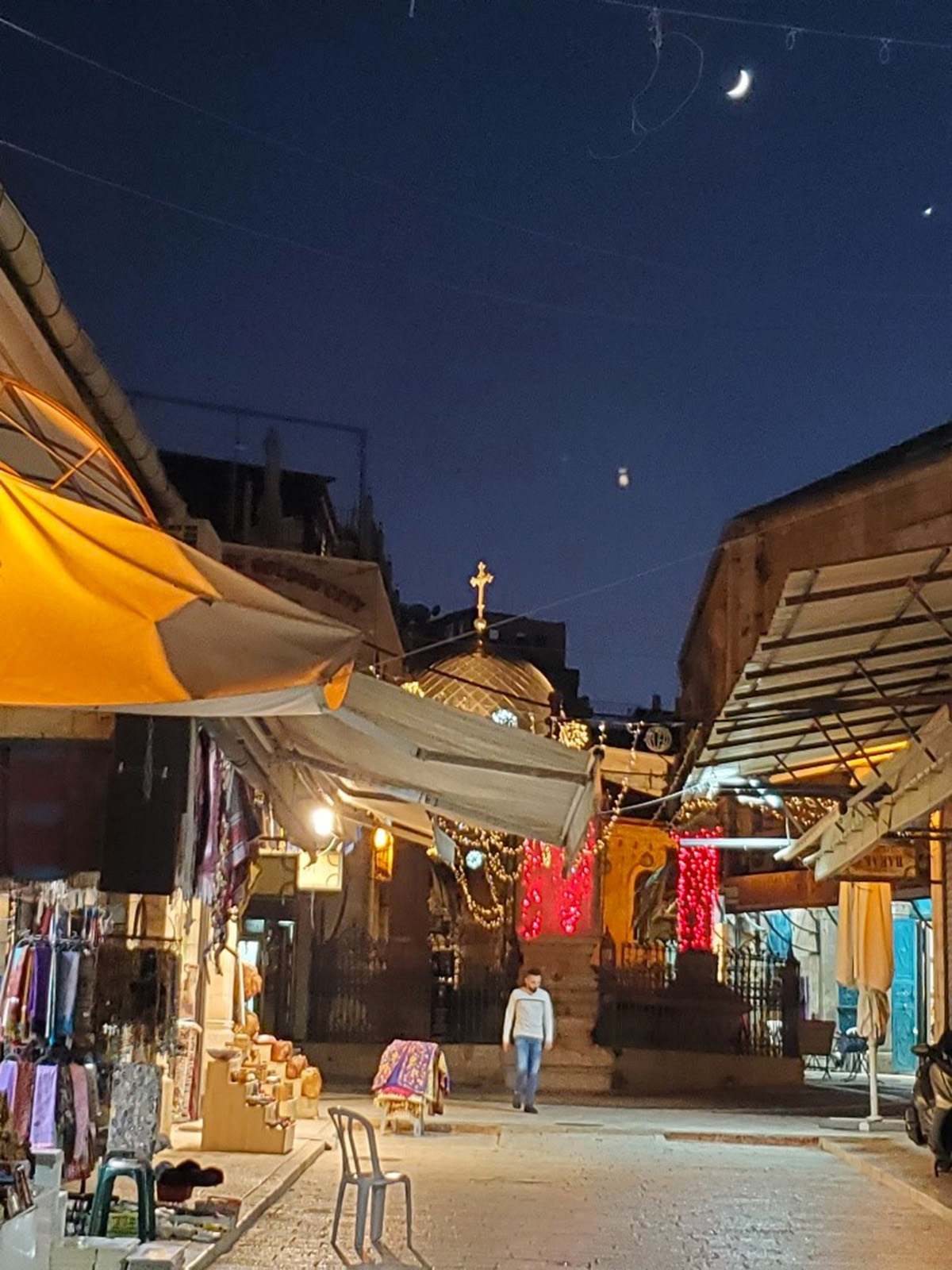
The Church of the Holy Sepulchre.
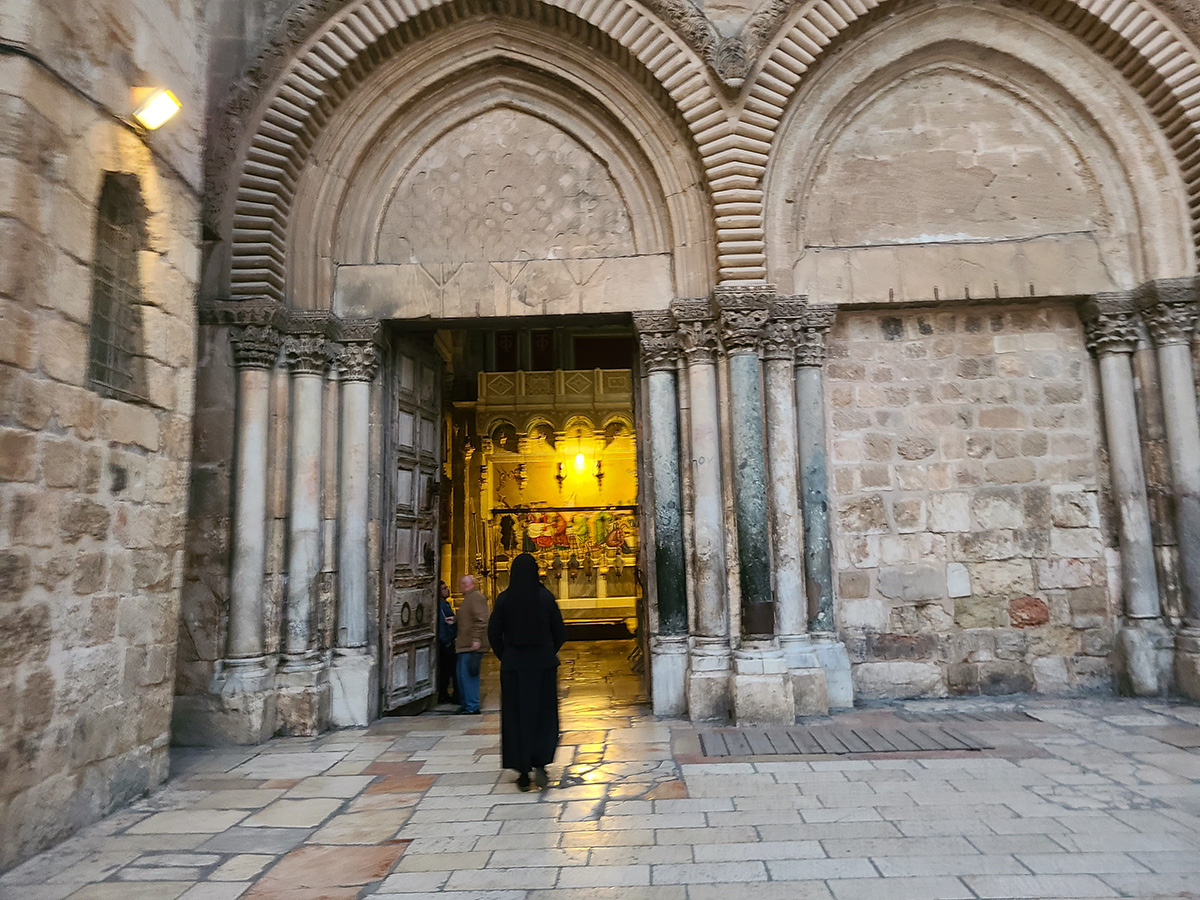
Pilgrims from across the globe journey to Jerusalem’s Old City to visit the Church of the Holy Sepulchre, the site of Jesus’ crucifixion, burial, and resurrection.
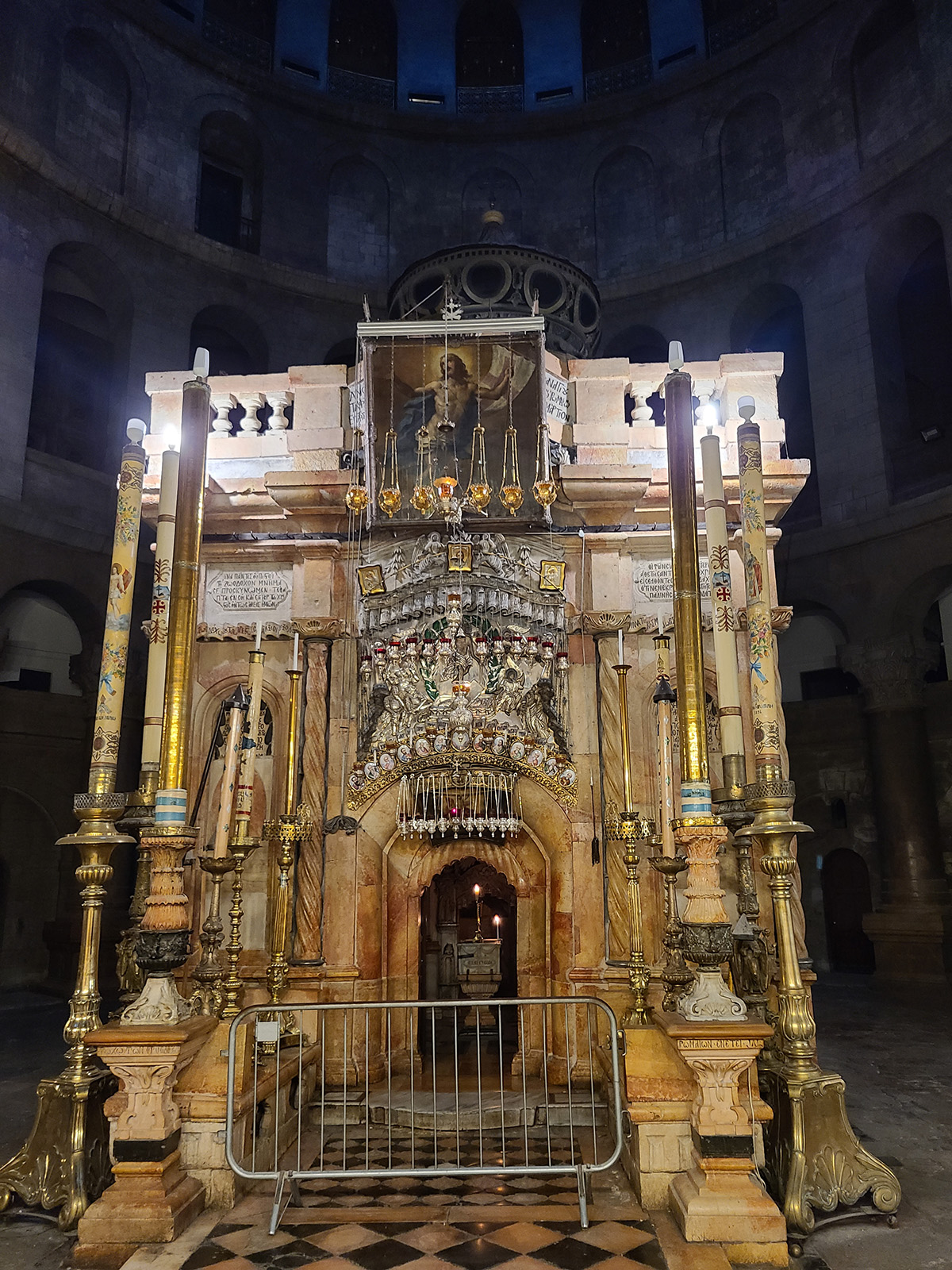 Jesus’ Tomb
Jesus’ Tomb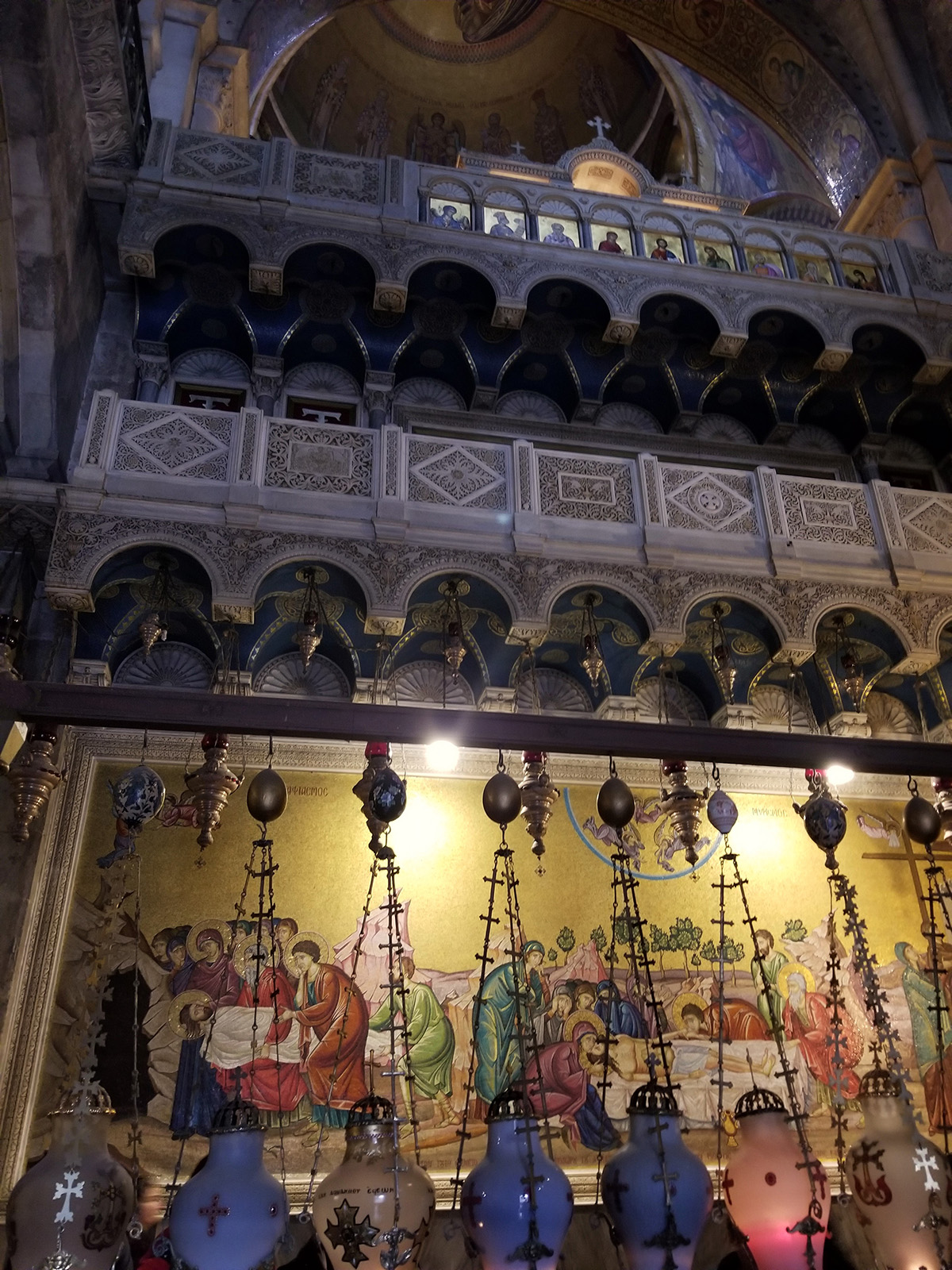
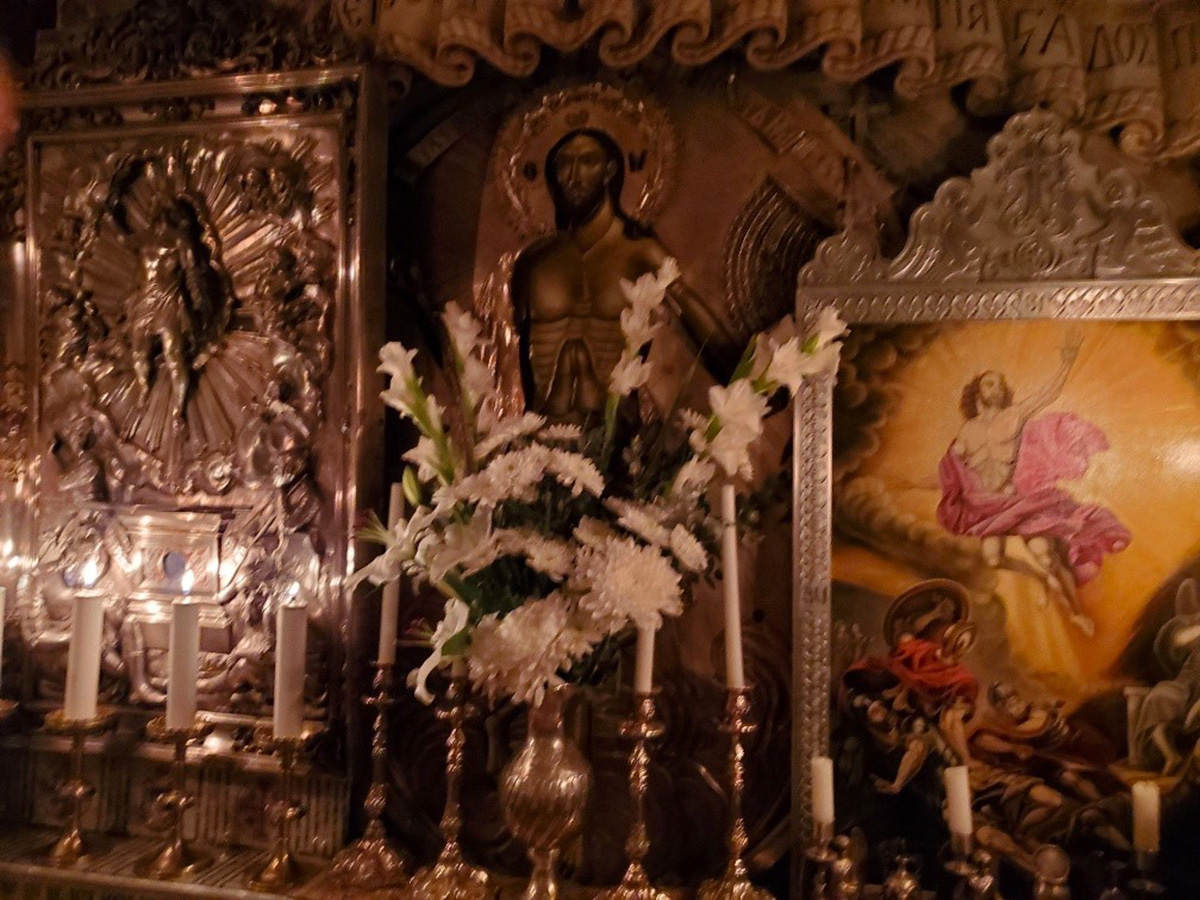 The interior of Jesus’ tomb.
The interior of Jesus’ tomb.The Holy Sepulchre does not belong to any one Christian denomination. It’s divided between the Roman Catholic (Franciscans), the Greek Orthodox, Armenians, and a smaller section for the Syriac Orthodox, the Copts, and Ethiopians.
This unique church has thirty-plus chapels and places of worship. It’s ethereal and mesmerizing no matter what your religious affiliation. Plan on spending several hours taking it all in and appreciating its spiritual aura. I recommend visiting in the early morning before the group tours arrive or in the evening when the tours have departed.
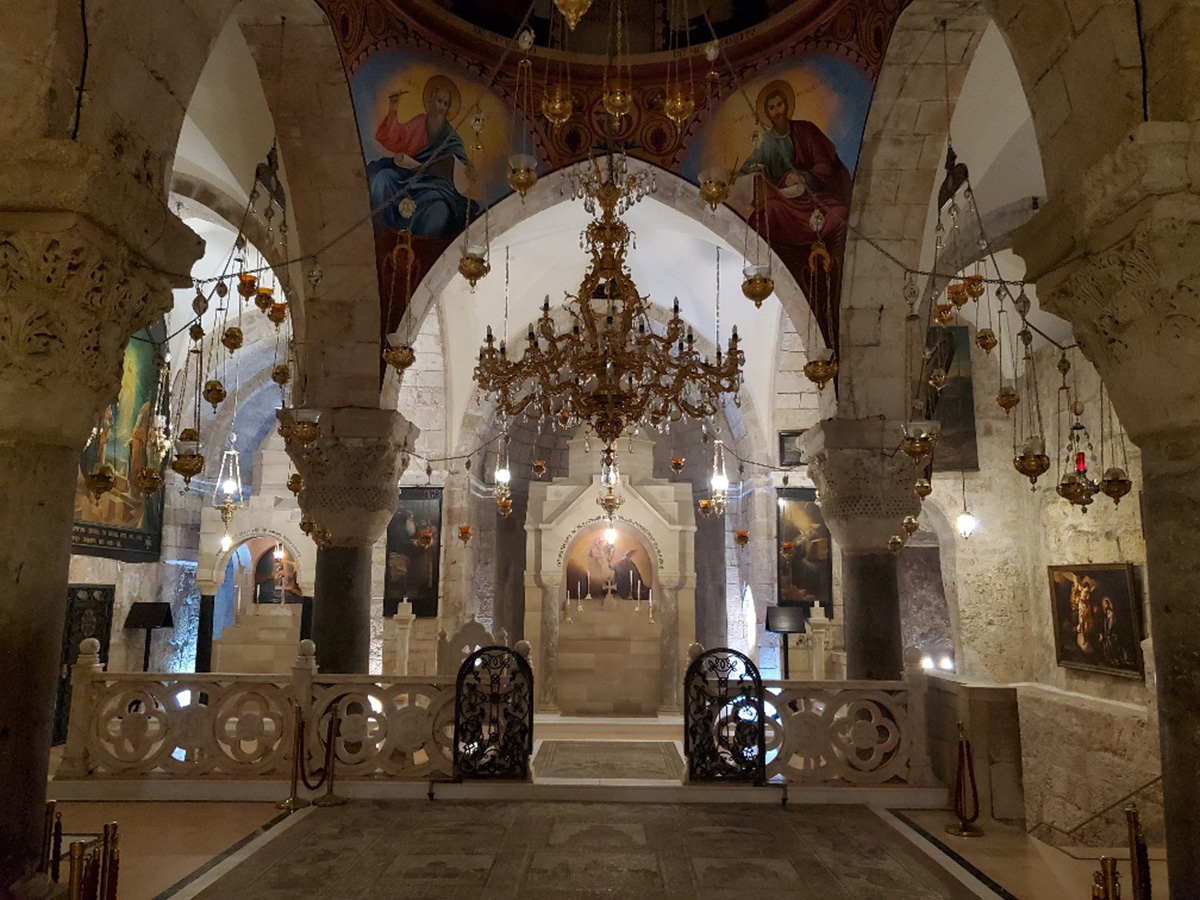
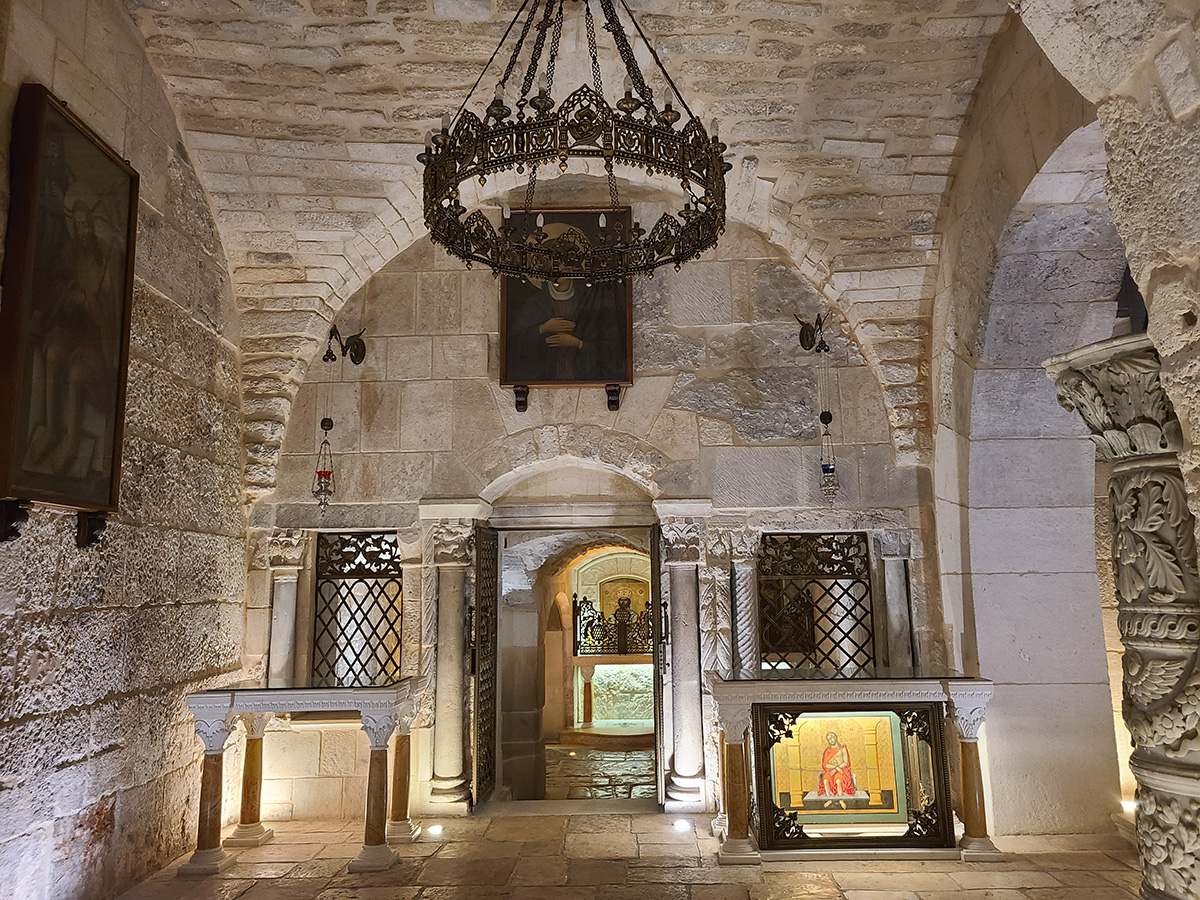
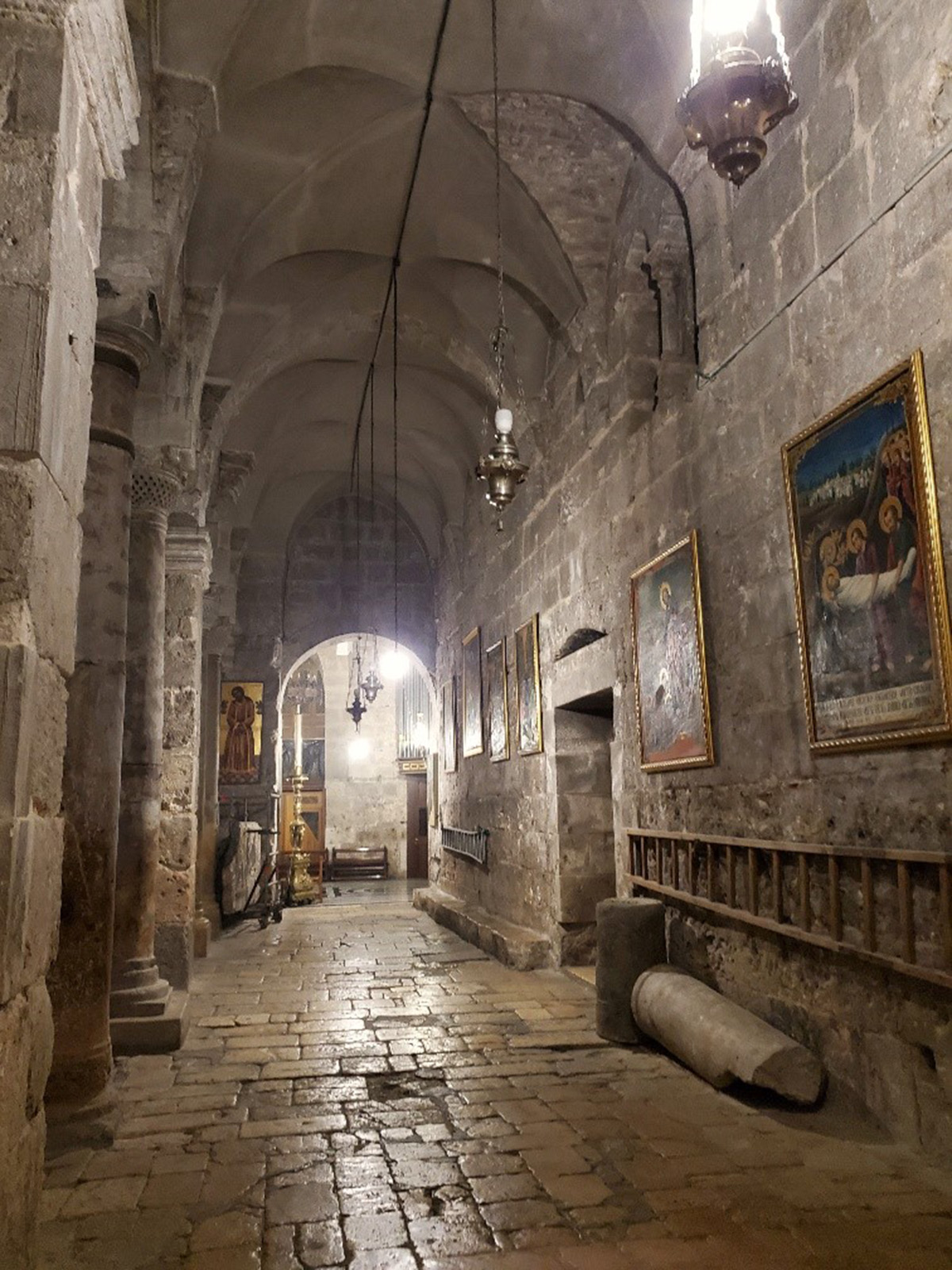
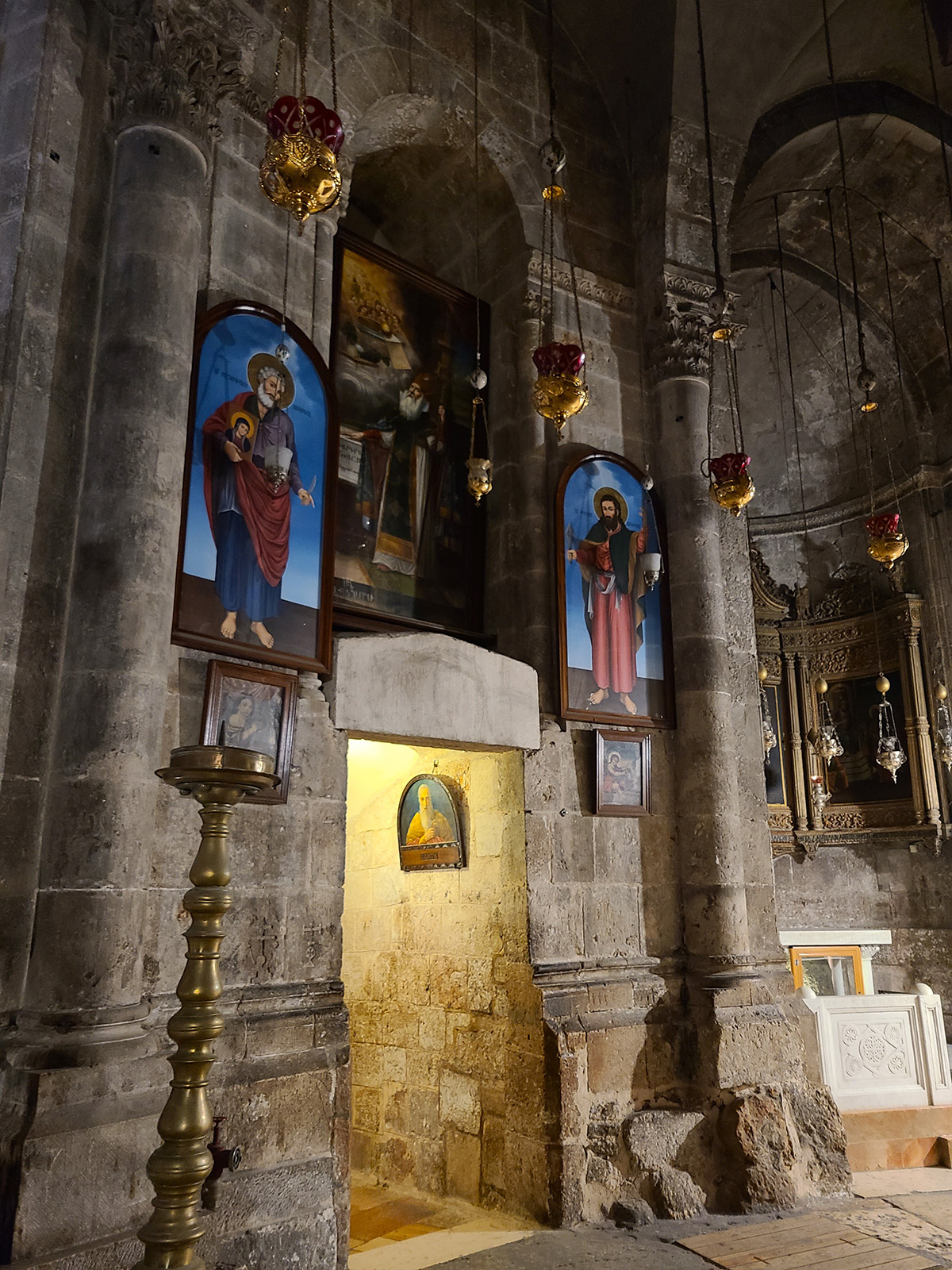
Don’t miss an often-overlooked hidden gem. Tucked away into the wall on the right side of the central courtyard is a modest, wooden doorway. Behind it lies a tiny Coptic Chapel. Walk to the back door on the left side of the chapel, ascend the stairs to the rooftop of the Church of the Holy Sepulchre, and you’ll find yourself in the Coptic Church quarters. It’s another world with its unusual dumpy stone structures and doors leading to places of worship.
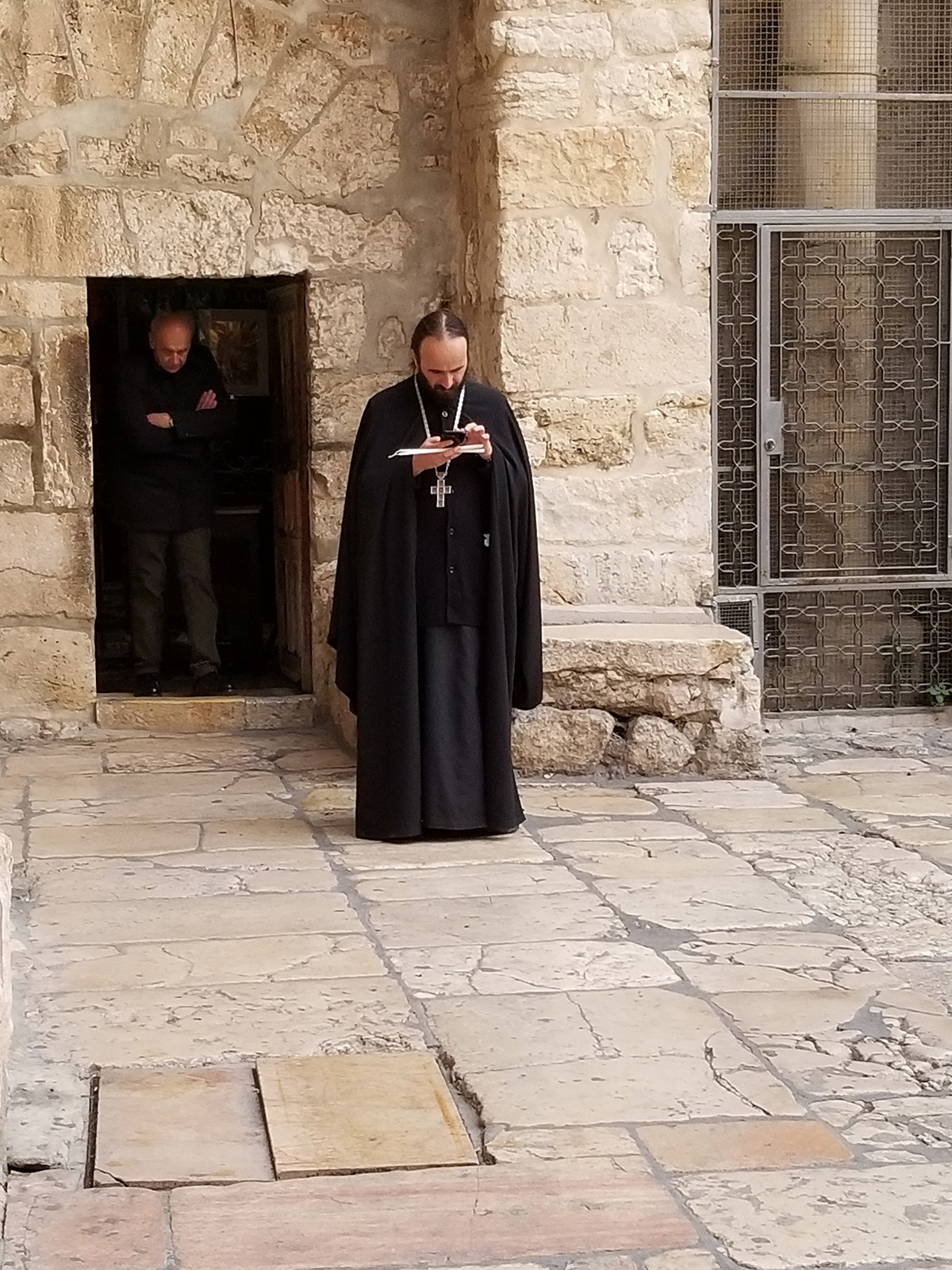

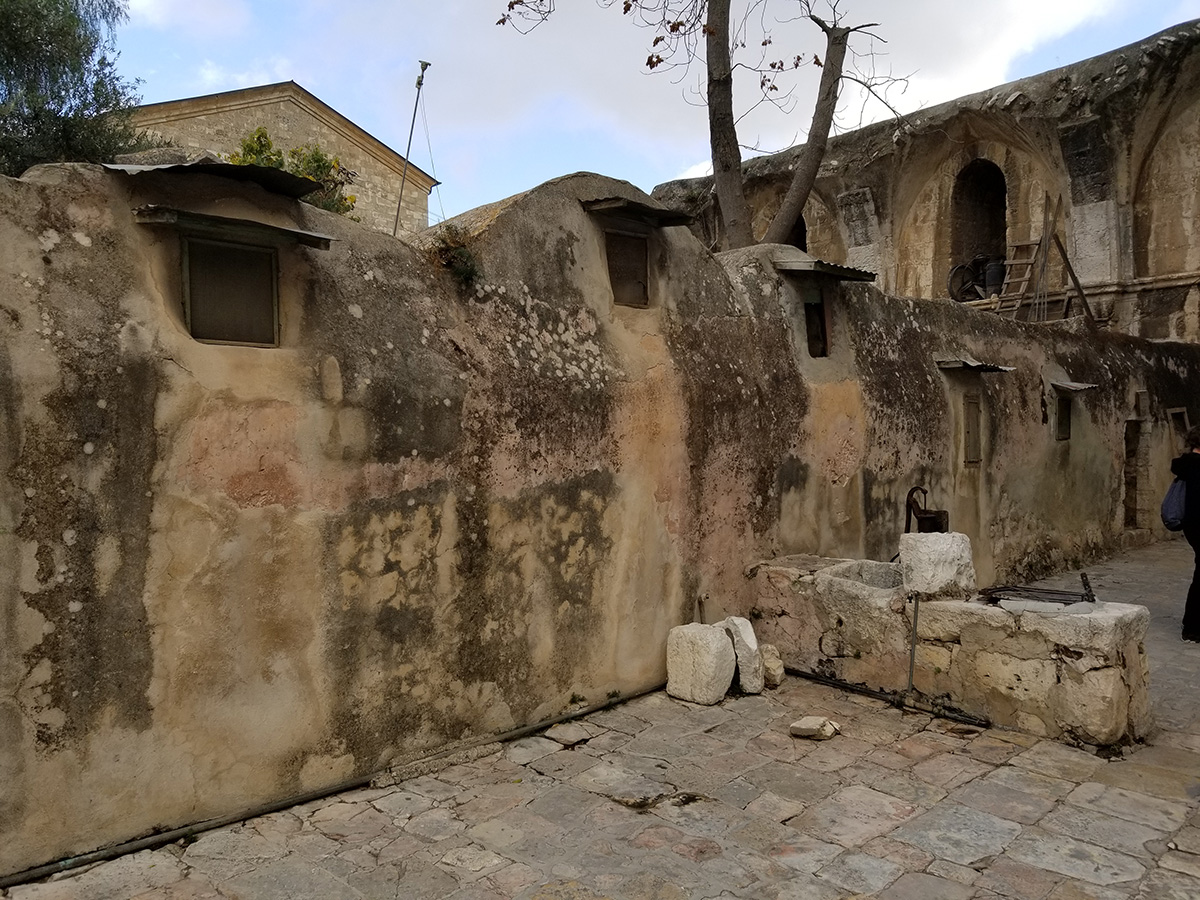
Walk to the far end of the compound, where you’ll see a signboard announcing Queen Helen’s Coptic Orthodox Church. Visit the church, then follow the signs that lead to an underground cistern hewn into the rock. Sing to your heart’s content, whistle, say a prayer or recite a poem, and hear your voice bouncing off the stone walls.
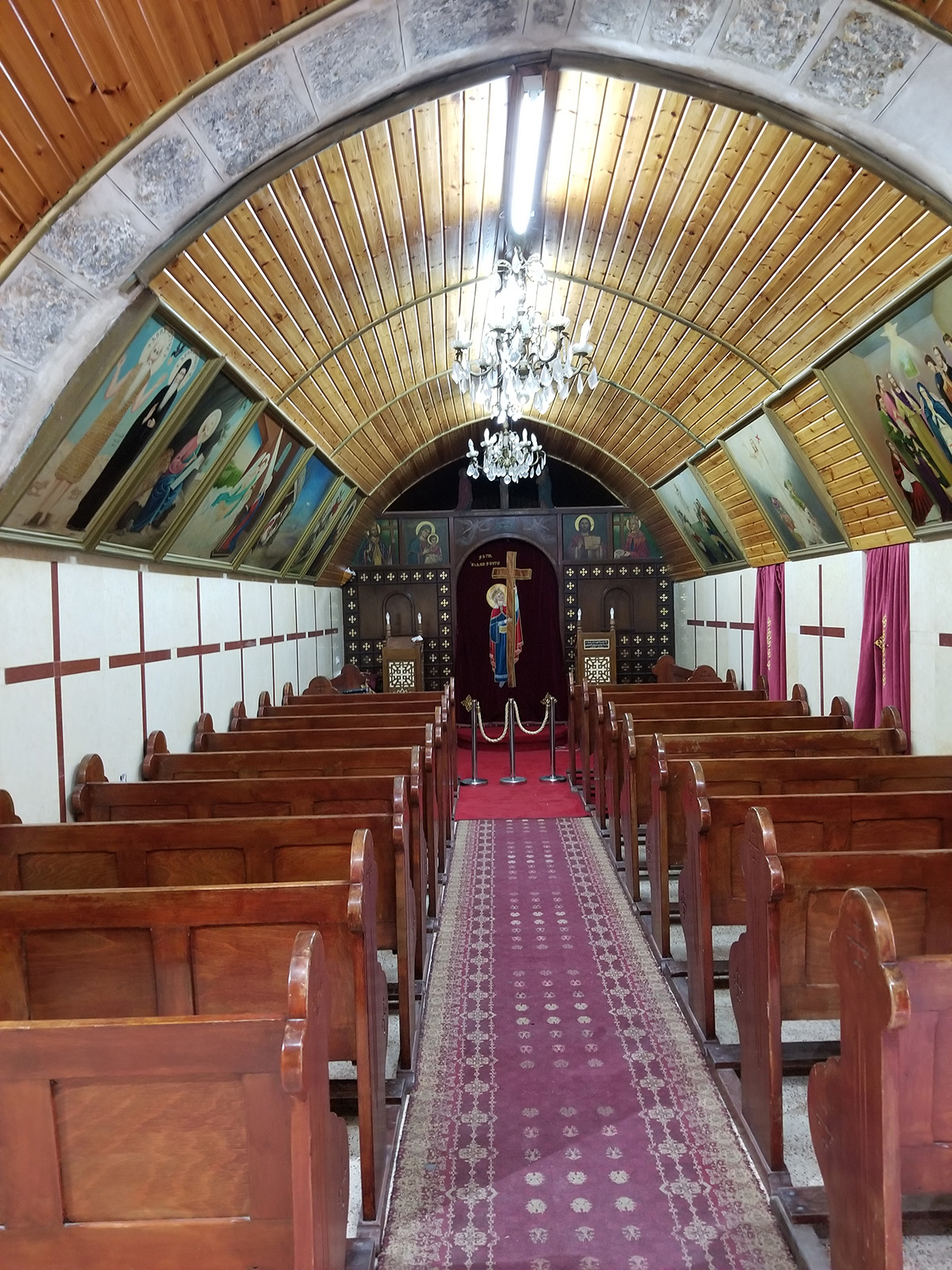
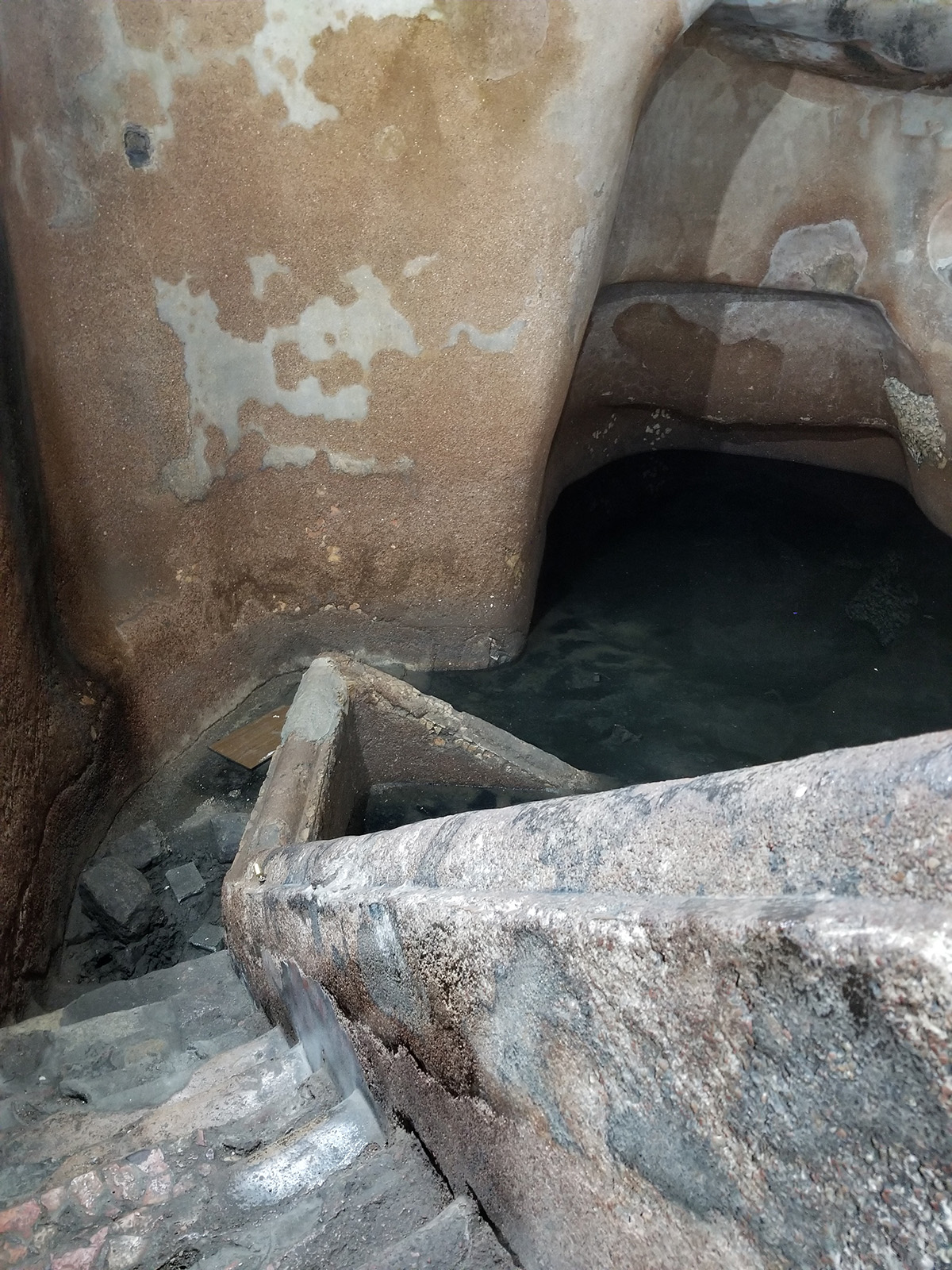
Walk the Via Dolorosa / The Stations of the Cross and follow the ancient path Jesus is said to have walked carrying his cross to his crucifixion. There are 14 stations in the Old City, beginning at Lion’s Gate in the Muslim Quarter. [Note that the route is not a continuous, straight street.] Even if one doesn’t walk the entire path, it’s worth doing at least a part of it. You can ask any locals in the Christian Quarter to direct you to the Via Dolorosa. You may be surprised to find that you are walking along that very path without realizing it.
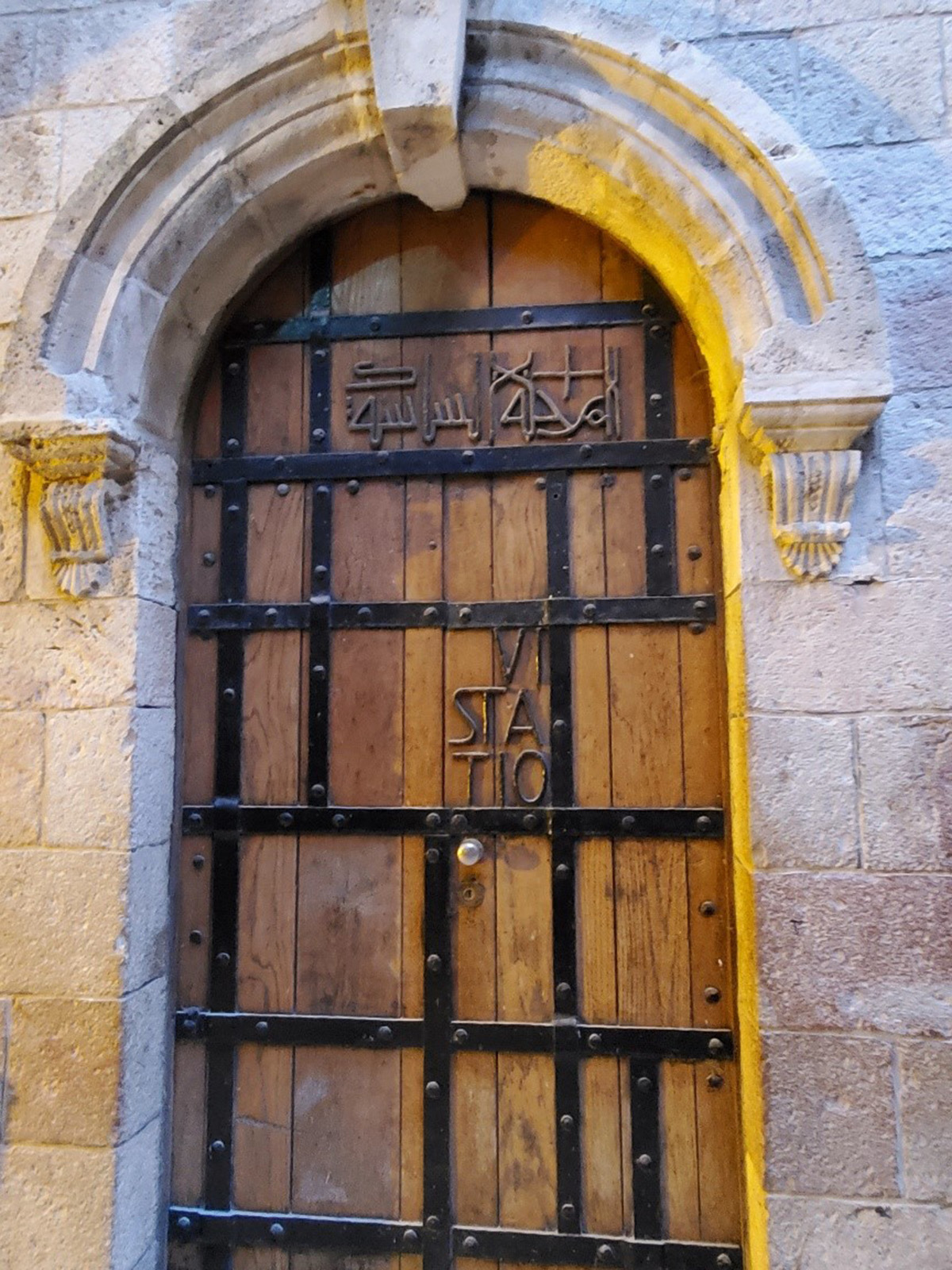
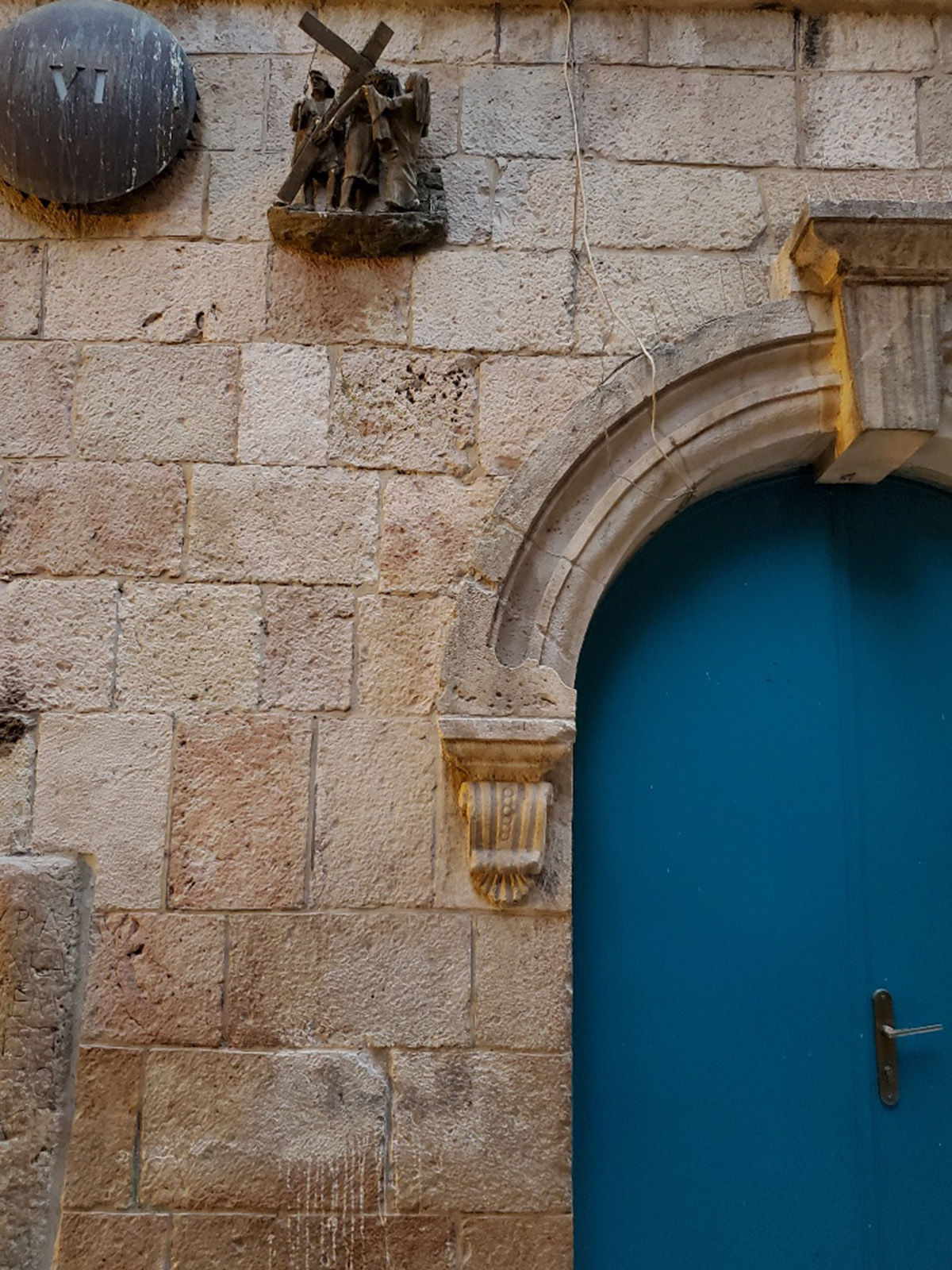
To do the entire route solo, set out with a map in hand in the early morning or evening when the ancient streets are quiet, and the route is not clogged by tour groups. You may also choose to do a free tour led by the Franciscan brothers, who walk the entire Via Dolorosa / Stations of the Cross, every Friday beginning at 3 or 4 pm, depending on the season. Meet at station ONE at the Lion’s Gate outside Madrasa al-Omiryya school, where it is believed that Jesus was condemned by Pontius Pilate, the Roman Governor of Judea.
*The stations are all numbered with Roman numerals.
No trip to the Old City is complete without tours of:
The Western Wall Tunnels. A professional guide will lead you through subterranean areas where you’ll discover remnants of the Second Temple, which was completed in 516 BCE and destroyed in 70 AD. You’ll view the archaeological findings of stone arches, water pits, mikvahs, an aqueduct, and the Struthion Pool.
*Reserve well in advance.
**Contact The Western Wall Heritage Foundation Tours.
https://thekotel.org/en/tours/western-wall-tunnels/
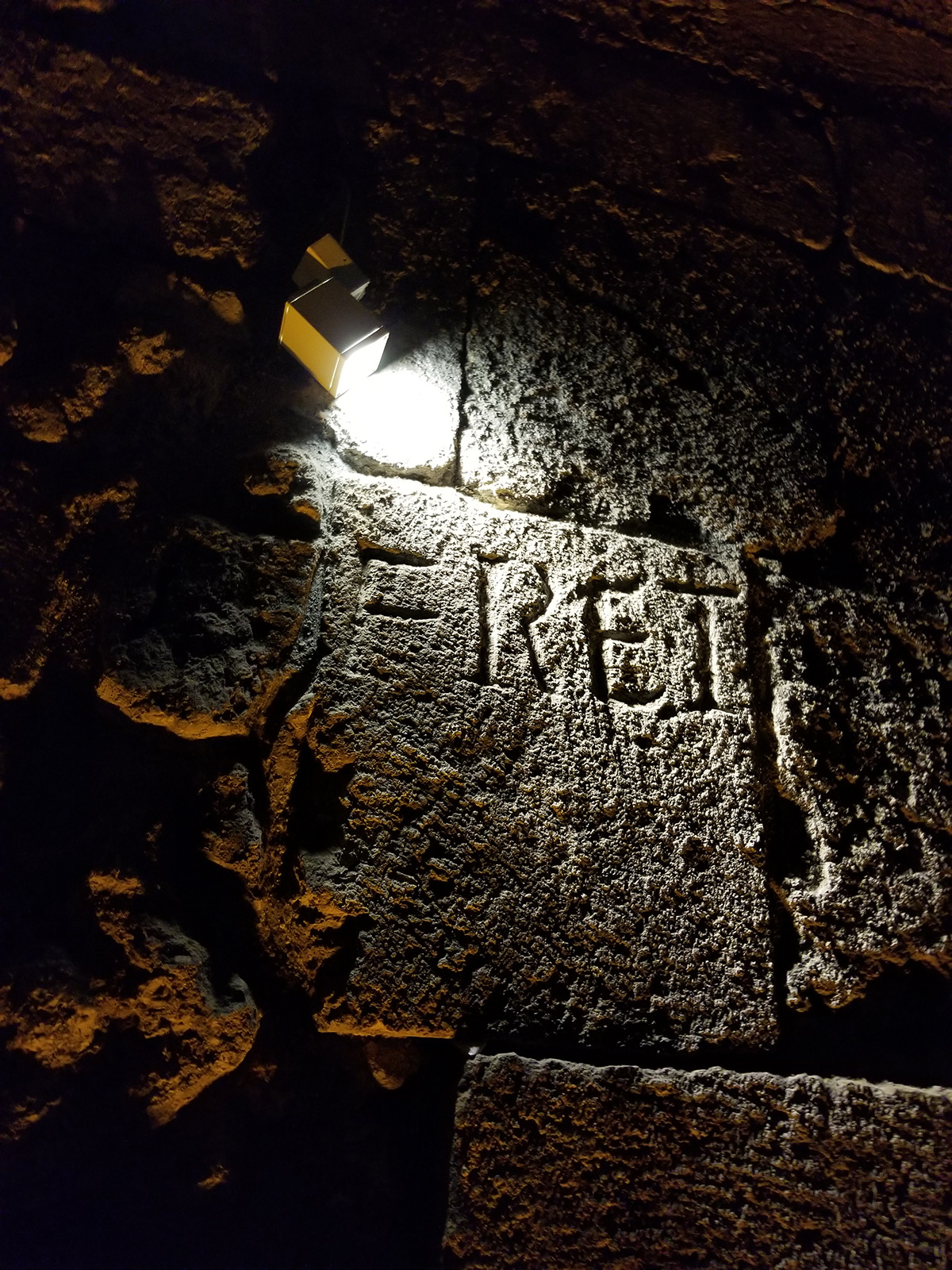
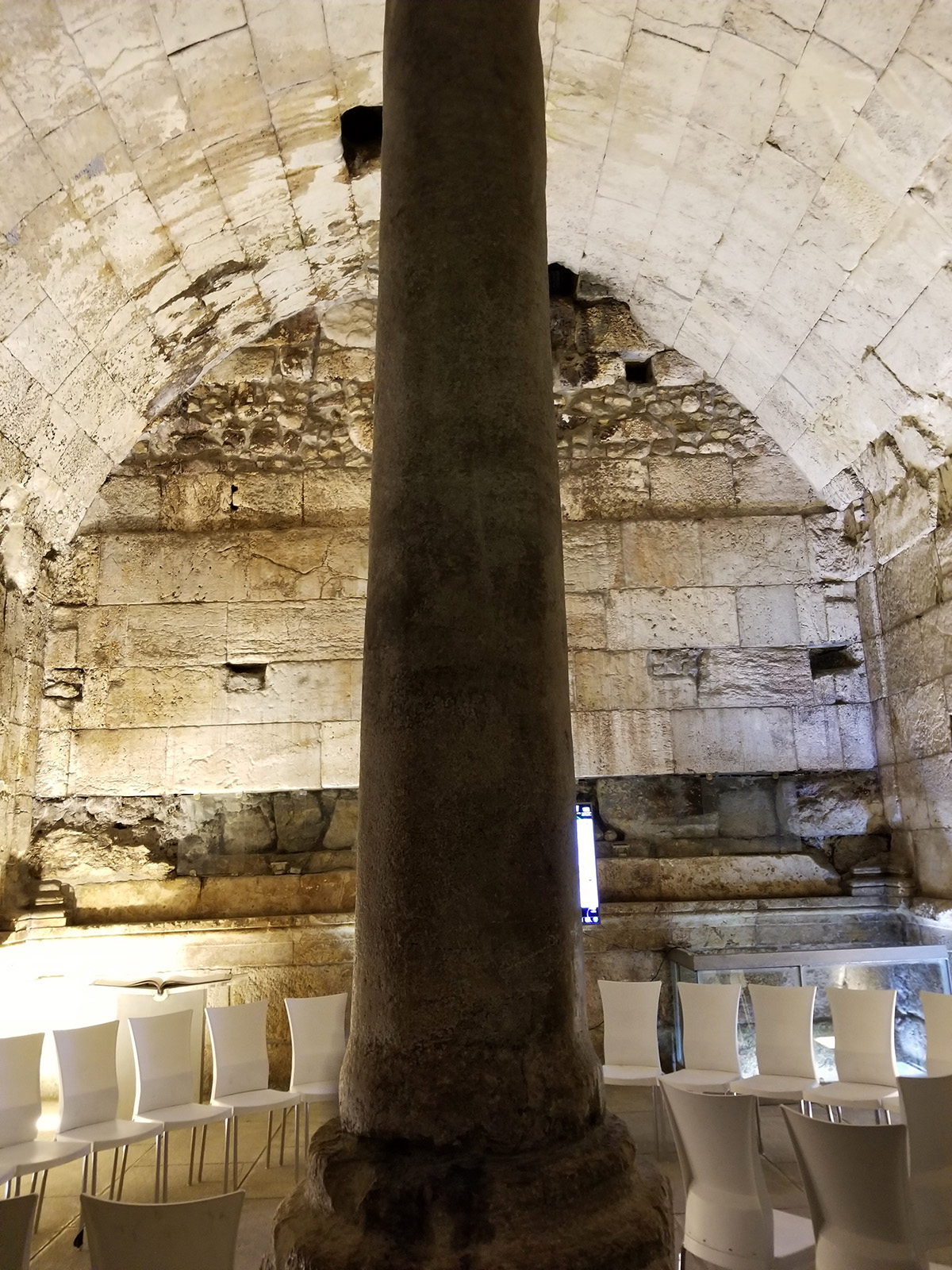
Ancient Jerusalem: City of David Tour
*Reserve well in advance
https://www.neweuropetours.eu/sandemans-tours/jerusalem/city-of-david-tour/
**Expect some wading through water.
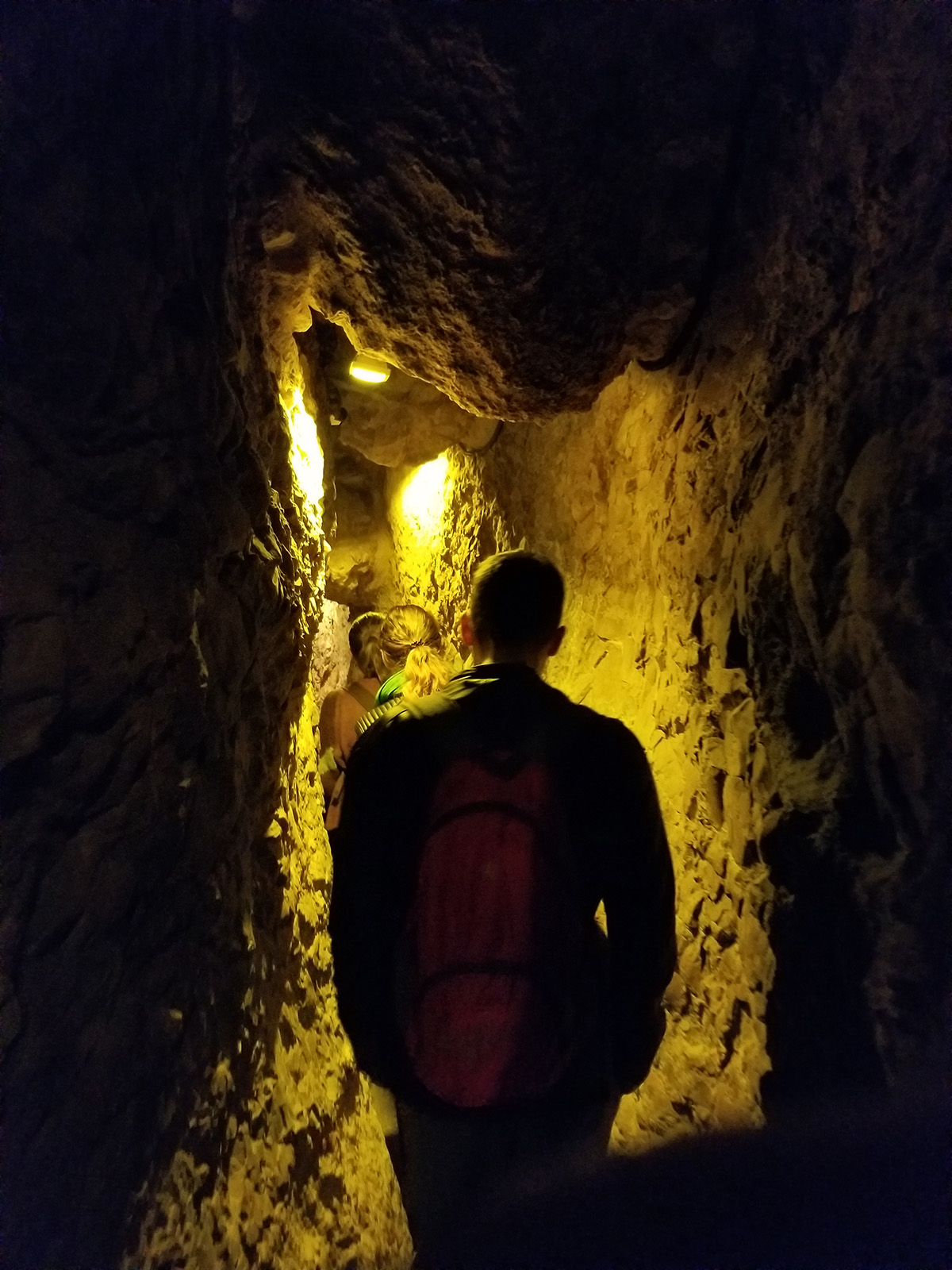
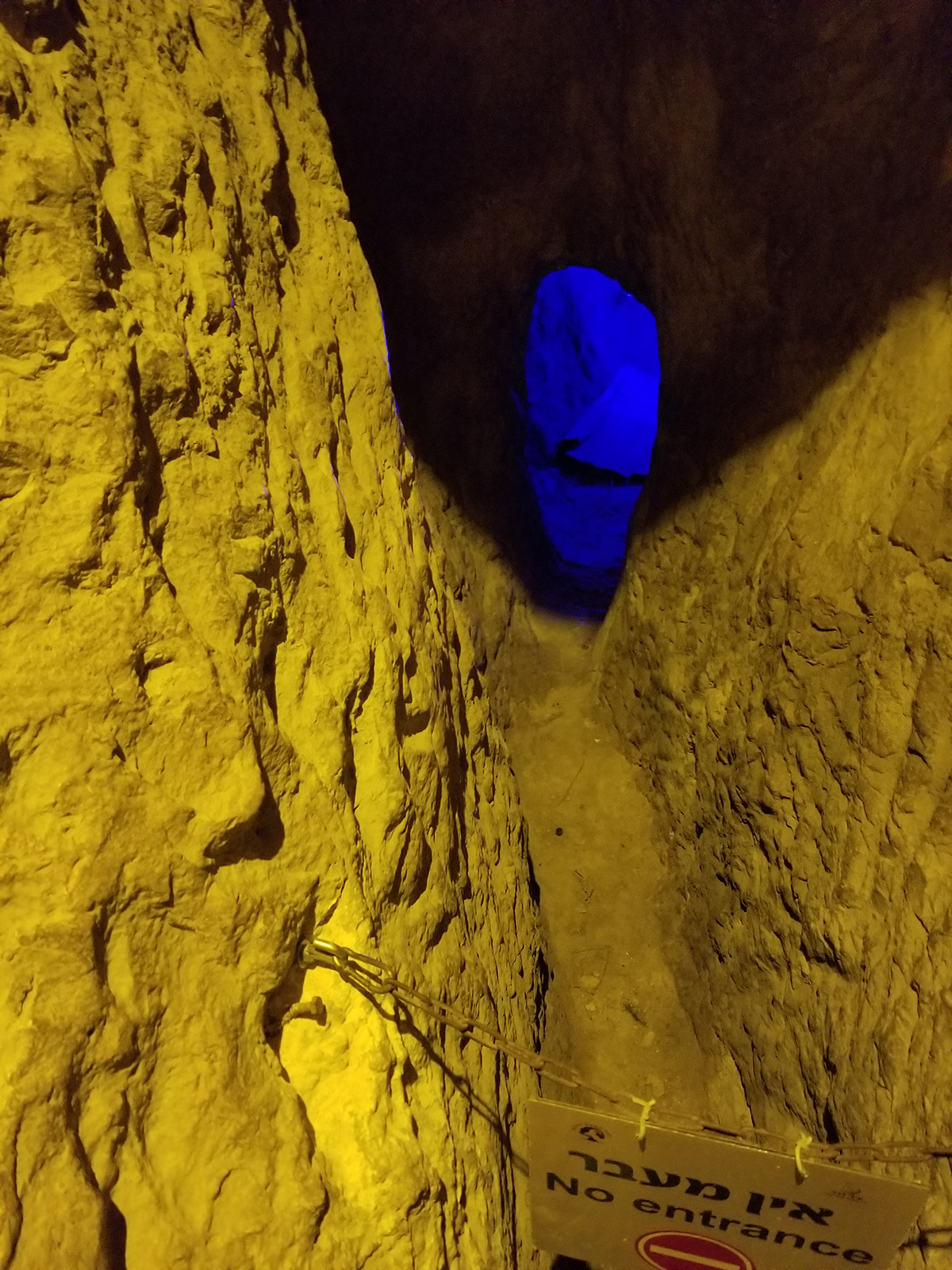
Free Walking Tours of Jerusalem with new Europe Sandeman tours. This two-hour free tour with terrific guides gives you an excellent introduction to the highlights.
https://www.neweuropetours.eu/sandemans-tours/jerusalem/jerusalem-holy-city-tour/
**Sandeman’s four-hour walking tour, which is not free, is a comprehensive tour of the Old City.
NOTE: I have no connections with any of these tour operators. I speak only from my personal satisfaction with their services.
